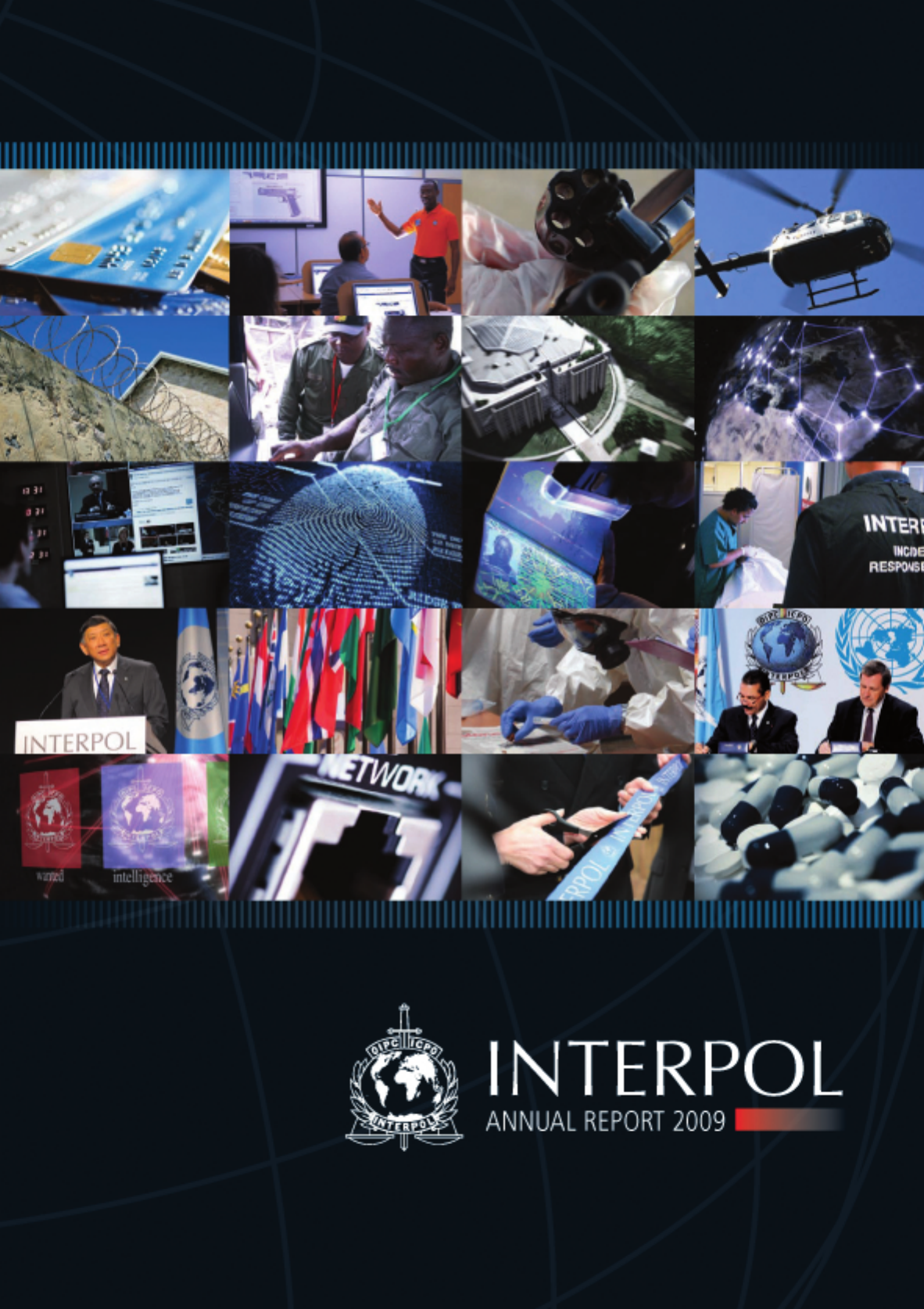
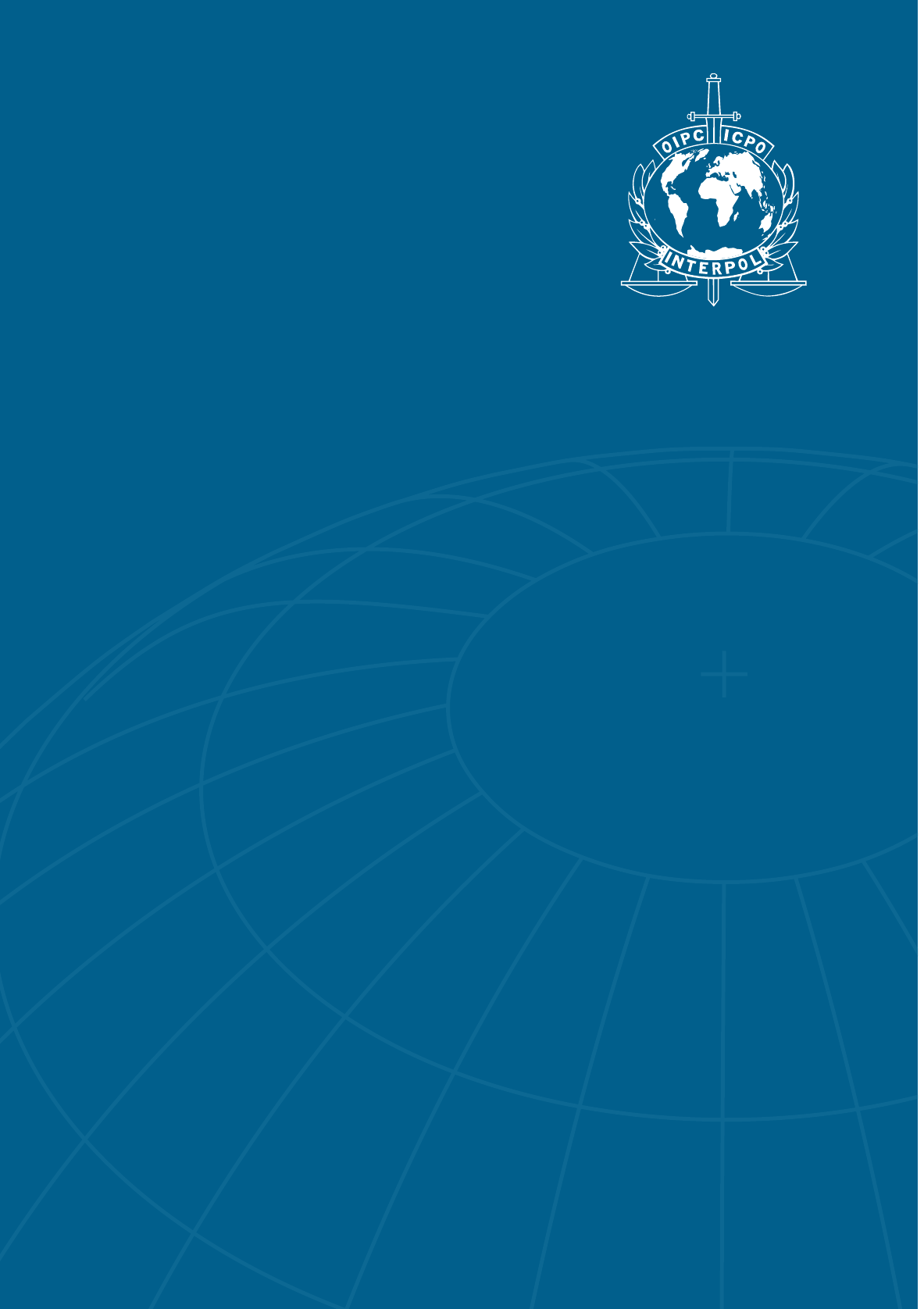
53
PEFC/10-31-1409
188
MEMBER COUNTRIES
2009:
INTERPOL GENERAL SECRETARIAT
200, quai Charles de Gaulle
69006 Lyon
France
Tel: +33 (0) 4 72 44 70 00
Fax: +33 (0) 4 72 44 71 63
E-mail: [email protected]
Liaison Office:
Bangkok, Thailand
Office of the Special Representative
of INTERPOL at the United Nations
in New York, United States of America
Office of the Special Representative
of INTERPOL at the European Union in
Brussels, Belgium
Regional Bureaus:
San Salvador, El Salvador
Buenos Aires, Argentina
Abidjan, Côte d’Ivoire
Yaoundé, Cameroon
Harare, Zimbabwe
Nairobi, Kenya
Copyright INTERPOL 2010
Photo credits: INTERPOL, Istockphoto, Andia.
Printed on paper obtained from sustainably managed forests.
ICPO_AnnualReport2009_Cover_Multilingual_01.indd 1 09/06/10 14:42

CONTENTS
S G’
3
T 4
STRATEGY AND CORE FUNCTIONS
8
EXECUTIVE COMMITTEE
9
GENERAL ASSEMBLY
10
REGIONAL CONFERENCES
11
DATA PROTECTION
11
G 7
T 27
DATABASES
28
EXTENDING INTERPOL SERVICES TO FIELD LEVEL
30
SPECIALIZED TEAMS
31
COMMAND AND CO-ORDINATION CENTRE
31
NOTICES AND RELATED ARRESTS
32
P 35
FUGITIVE INVESTIGATIVE SUPPORT
36
PUBLIC SAFETY AND TERRORISM
38
DRUGS AND CRIMINAL ORGANIZATIONS
40
FINANCIAL AND HIGH-TECH CRIME
42
TRAFFICKING IN HUMAN BEINGS
44
ANTI-CORRUPTION
45
F 47
FINANCIAL SUMMARY
48
FINANCIAL STATEMENTS
49
A 13
INTERPOL AROUND THE WORLD
14
FIELD OPERATIONS
18
POLICE TRAINING AND DEVELOPMENT
22
INTERNATIONAL PARTNERSHIPS
24
ICPO_AnnualReport2009_EN_12.indd 1 09/06/10 17:50
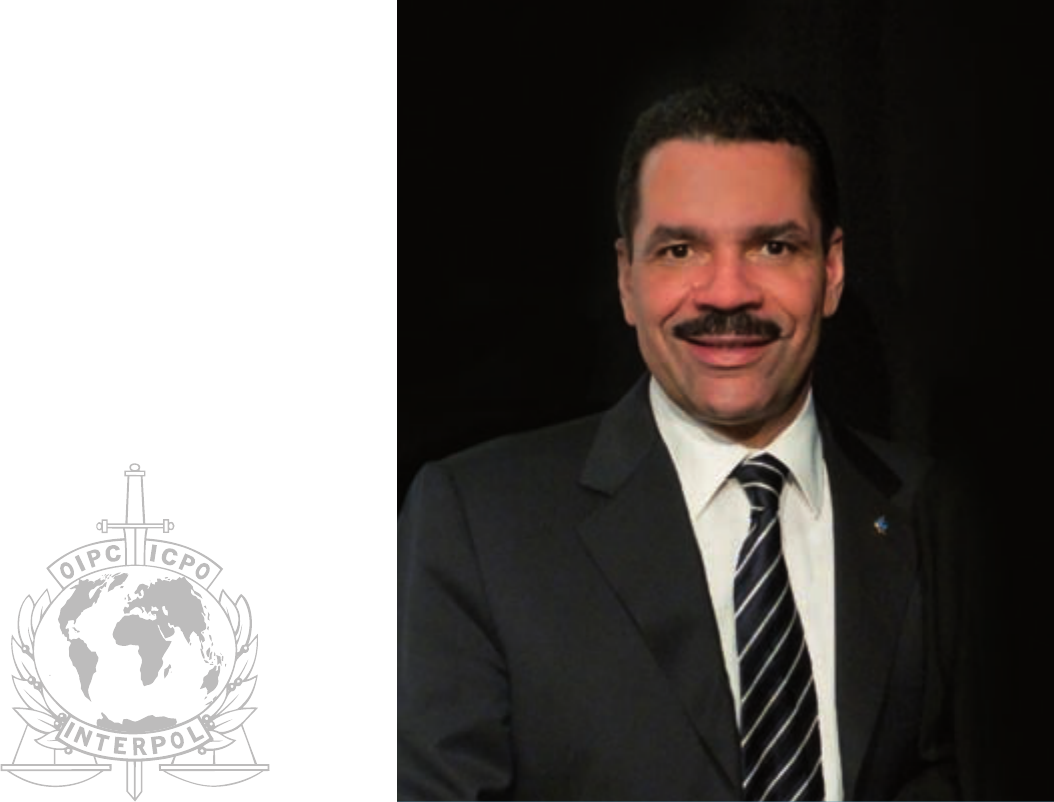
“I
,
,
.”
ICPO_AnnualReport2009_EN_12.indd 2 09/06/10 17:50

33
INTERPOL • ANNUAL REPORT 2009
SECRETARY GENERAL’S
FOREWORD
The year 2009 closed a decade filled with formidable challenges for
police forces worldwide, as serious transnational crimes and other
threats to public security grew in diversity and scope. In line with
this, we also saw the emergence of a new global environment in
which our National Central Bureaus and police in all our member
countries became more engaged, inter-dependent and responsive
than ever before.
This Annual Report, my 10
th
as Secretary General of INTERPOL,
highlights our responses to these challenges.
Throughout this time, our member countries – now totalling 188 –
have increasingly relied on our communications network, databases
and 24/7 support capacity, especially in the past year, as our unique
ability to help them secure their borders, track down fugitives and
investigate crimes with an international element has become more
clearly understood and appreciated.
The historic joint meeting with the United Nations Department
of Peacekeeping Operations prior to our General Assembly in
Singapore in October brought together more than 60 ministers
from around the world, a clear endorsement for an enhanced role
for police in international peacekeeping missions.
With border security high on the agenda, more countries
implemented the systematic screening of passports at airports
and borders; as a result, searches of our Stolen and Lost Travel
Documents database exceeded 300 million in 2009. We also
unveiled the INTERPOL passport, which will facilitate the official
travel of personnel when member countries request our assistance
by eliminating delays and will showcase the latest innovations in
travel document security.
This Report presents our greatest achievements in 2009, which
were all made possible by the strength of our National Central
Bureaus, the leadership of our President and Executive Committee,
and the support of our member countries, together with the
commitment of our staff at the General Secretariat and in our
Regional Bureaus.
We will build on this past year’s successes as we initiate more
intensive strategic planning to enable us to reach even higher in
2010.
Ronald K. Noble
INTERPOL Secretary General
ICPO_AnnualReport2009_EN_12.indd 3 09/06/10 17:50
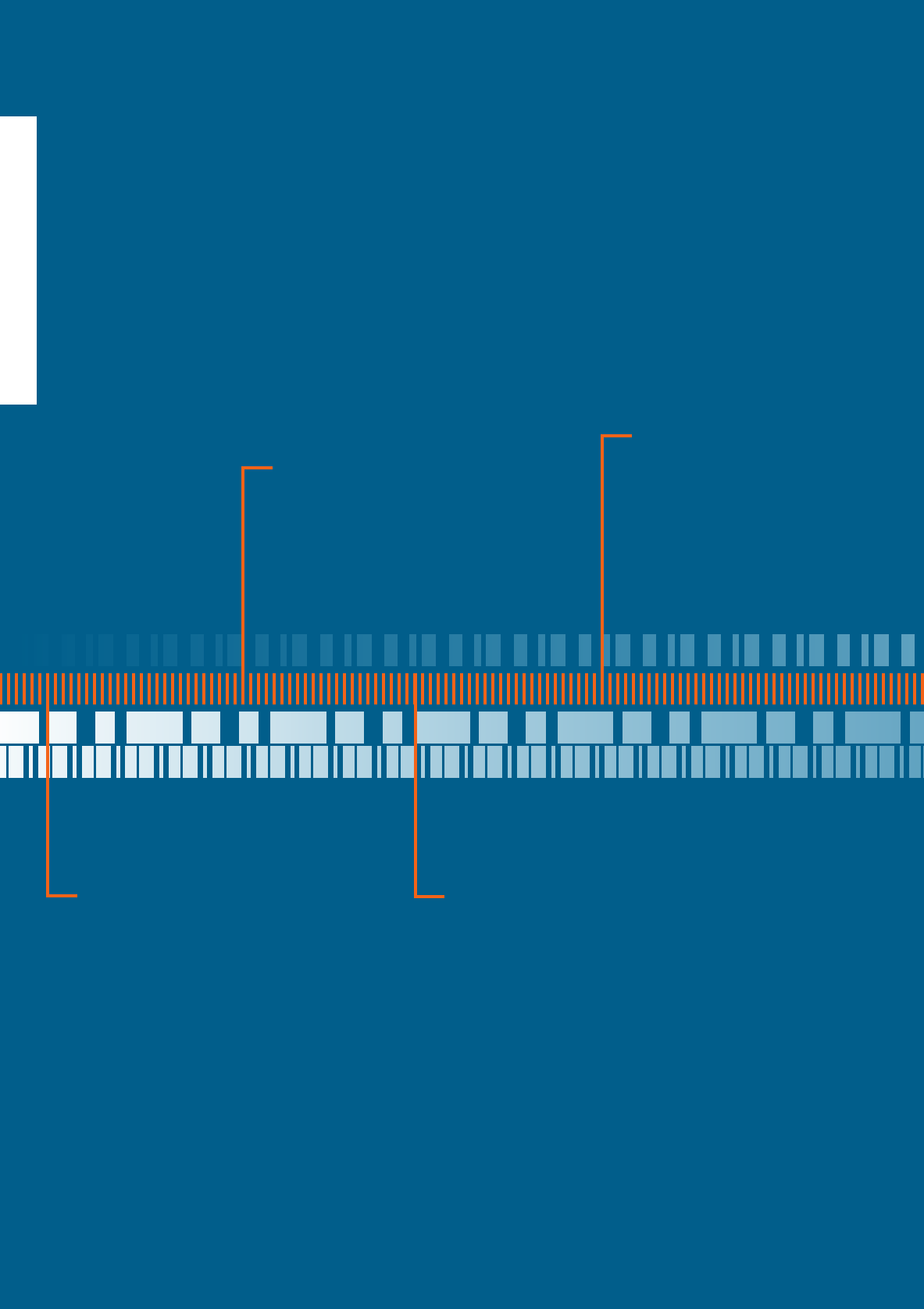
2
60
An unprecedented
INTERPOL–United Nations
meeting saw government
ministers from more than
60 countries back a plan to
boost the role of police in
peacekeeping operations.
188
Samoa became INTERPOL’s
188
th
member country.
45
Operation Infra-Red resulted
in the location and arrest of
45 wanted fugitives around
the globe.
Our regional presence was
reinforced by the official
opening of two offices:
the Office of the Special
Representative of INTERPOL
to the European Union and
our new Regional Bureau in
Yaoundé.
THE YEAR IN FIGURES
T
O’ ,
.
ICPO_AnnualReport2009_EN_12.indd 4 09/06/10 17:50
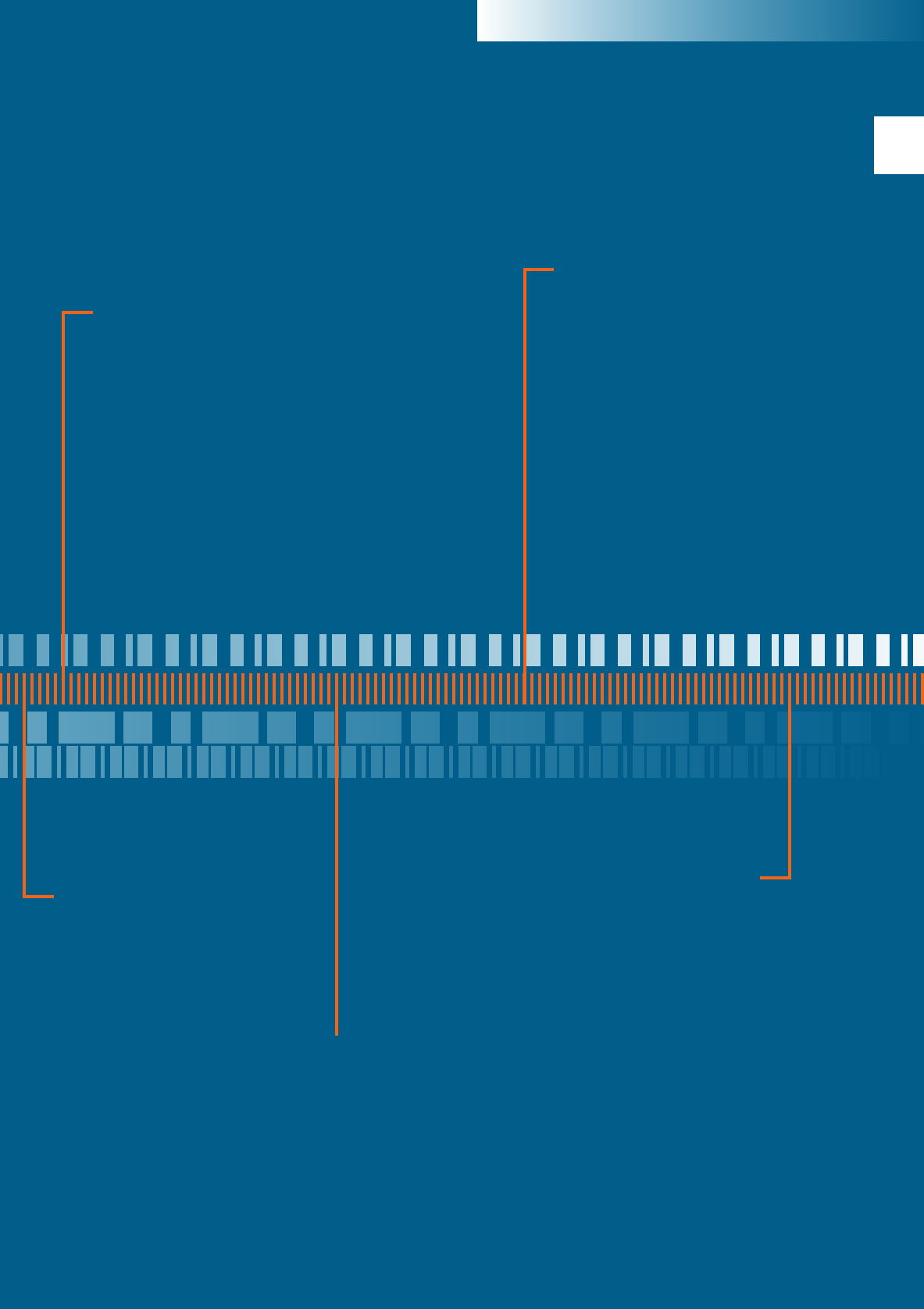
5
INTERPOL • ANNUAL REPORT 2009
1,
453
4,
500
9m
326m
Thanks to our
International Child
Sexual Exploitation
database, 1,453 child
abuse victims had
been identified and
rescued worldwide by
the end of 2009.
We provided more
than 4,500 law
enforcement officials
from around the world
with specialist training
in a range of crime
areas.
More than 9 million
searches of our
Stolen Motor Vehicles
database – containing
details of 6.2 million
vehicles – were carried
out, almost three times
as many as during
2008.
More than 300 million
searches of our
Stolen and Lost Travel
Documents database,
containing nearly
20 million records,
were conducted
worldwide.
5,
020
More than 5,000
INTERPOL Red
Notices – or alerts for
international wanted
persons – were issued.
ICPO_AnnualReport2009_EN_12.indd 5 09/06/10 17:50

ICPO_AnnualReport2009_EN_12.indd 6 09/06/10 17:50
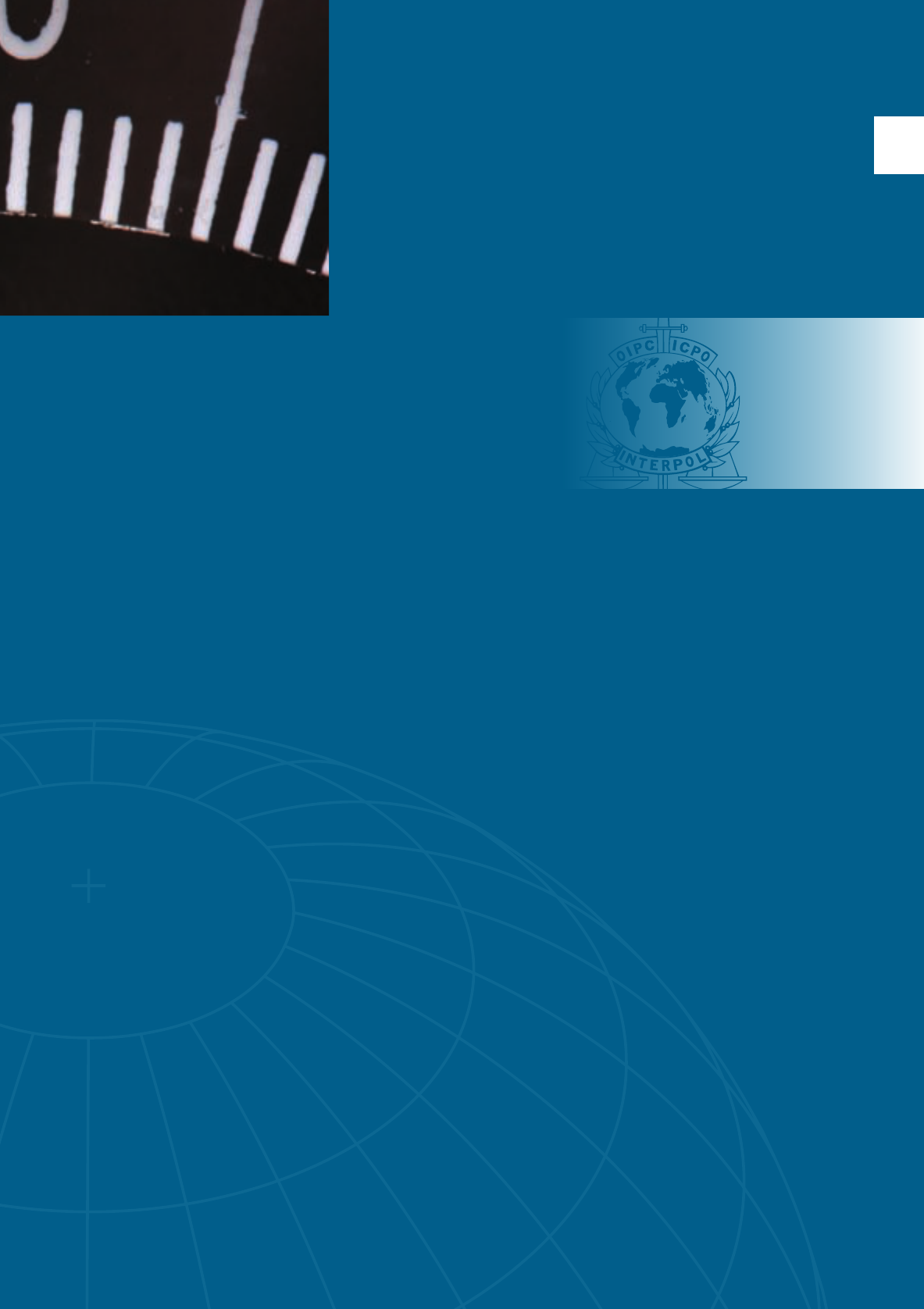
7
GOVERNANCE AND
STRATEGY
1
INTERPOL’ “C
” . A
,
.
ICPO_AnnualReport2009_EN_12.indd 7 09/06/10 17:50
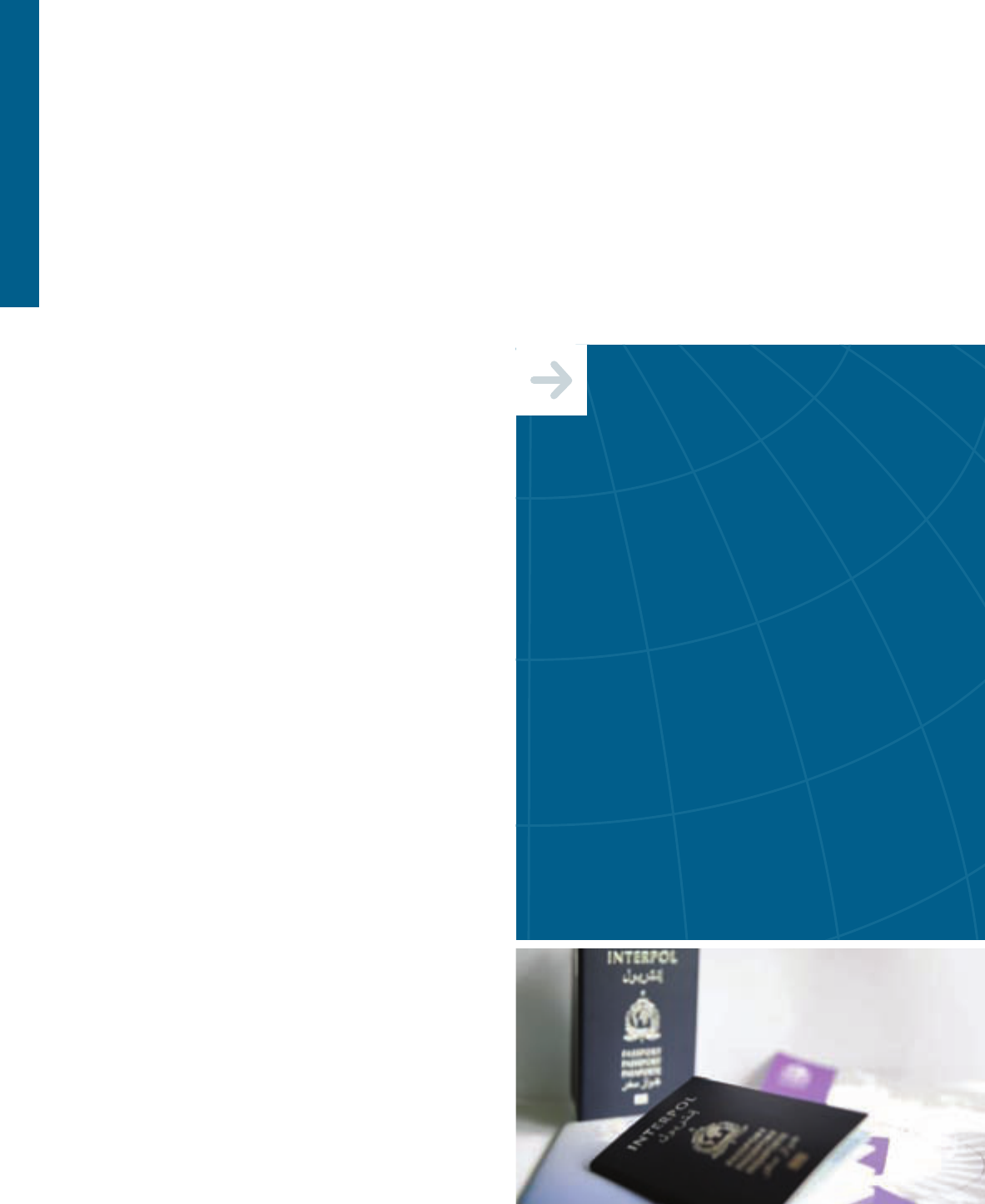
S
In response to the pressing security challenges of an increasingly
globalized world, we are developing comprehensive strategies to
address terrorism, cybercrime and other transnational threats.
We are exploring new and enhanced approaches for working with
governments, other international organizations and the private
sector with the common goal of building greater global stability.
Four core functions guide our work towards our mission of
preventing and fighting crime through enhanced international
police co-operation:
ρ SECURE GLOBAL POLICE COMMUNICATION SERVICES
A global police communications system, known as I-24/7,
enables police in all member countries to request, submit and
access vital data instantly in a secure environment.
ρ OPERATIONAL DATA SERVICES AND DATABASES FOR
POLICE
Member countries have direct and immediate access to a
wide range of databases including information on known
criminals, fingerprints, DNA profiles and stolen or lost travel
documents. We also disseminate critical crime-related data
through a system of international Notices.
ρ OPERATIONAL POLICE SUPPORT SERVICES
We provide law enforcement officials in the field with
emergency support and operational activities, especially in
our priority crime areas. A Command and Co-ordination
Centre operates 24 hours a day, seven days a week and can
deploy an Incident Response Team to the scene of a serious
crime or disaster.
ρ POLICE TRAINING AND DEVELOPMENT
We provide focused police training initiatives in order to
enhance the capacity of member countries to effectively
combat transnational crime and terrorism. This includes
sharing knowledge, skills and best practices in policing and
establishing global standards.
INTERPOL
---
A prototype for an INTERPOL passport, unveiled
at October’s General Assembly, aims to facilitate
INTERPOL travel internationally when asked by
member countries to provide assistance – be it
investigating crime or responding to a disaster.
Four countries – Cameroon, the Democratic
Republic of Congo, Pakistan and Ukraine –
pledged to waive visa entry requirements for
INTERPOL officials, while the initiative was also
endorsed by the Committees of the West African
and Central African Chiefs of Police (WAPCCO and
CAPCCO).
A further purpose of the initiative is to set new
standards in document security. The state-of-
the-art passport incorporates a range of security
features such as laser engraving, an electronic
chip, holographic, micrographic and optical
security elements.
ICPO_AnnualReport2009_EN_12.indd 8 09/06/10 17:50
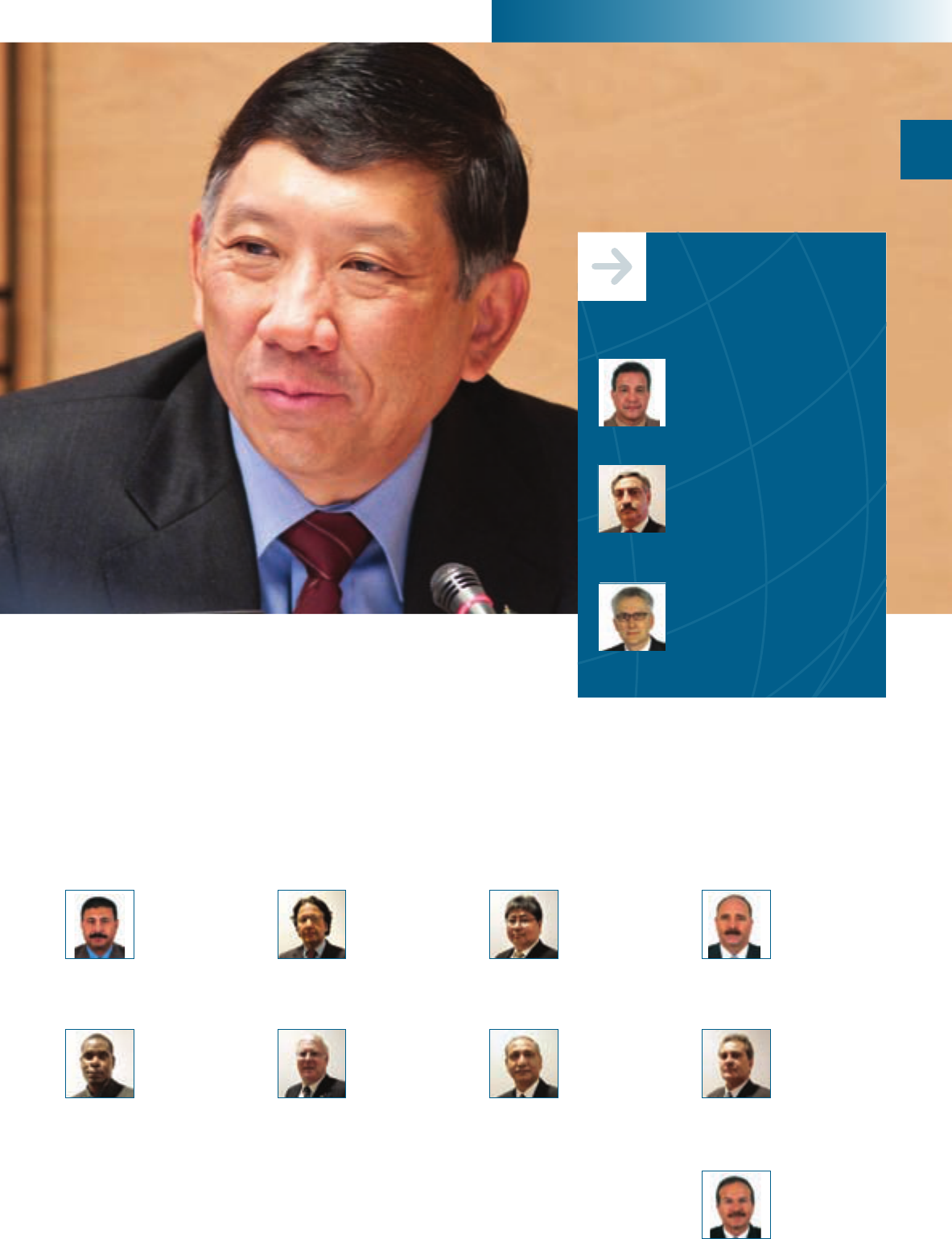
1. GOVERNANCE AND STRATEGY
9
INTERPOL • ANNUAL REPORT 2009
E C
The Executive Committee provides guidance and direction to the Organization and
oversees the implementation of decisions made at the annual General Assembly.
The Committee met four times in 2009.
DELEGATES
AFRICA THE AMERICAS ASIA EUROPE
Magdy ELSHAFEY
(Egypt) 2008-2011
Adamu Abubakar MOHAMMED
(Nigeria) 2009-2012
Jorge BARBOSA PONTES
(Brazil) 2009-2011
William J.S. ELLIOTT
(Canada) 2009-2012
Nobuyuki KAWAI
(Japan) 2009-2012
Tariq KHOSA
(Pakistan) 2009-2012
Petter DYHRE
(Norway) 2008-2011
Süleyman ISILDAR
(Turkey) 2008-2011
Francisco GIL MONTERO
(Spain) 2009-2012
The following members completed their terms of service in October:
Eduardo Fernandes CERQUEIRA, Angola
Thomas V. FUENTES, United States
Arturo HERRERA VERDUGO, Chile
Konstantin MACHABELY, Russian Federation
Ki Ryun PARK, Republic of Korea
Vijay SHANKER, India
VICE-PRESIDENT FOR AFRICA
Mostapha MOUZOUNI
(Morocco) 2008-2011
VICE-PRESIDENT FOR
THE AMERICAS
Néstor Jorge VALLECCA
(Argentina) 2009-2012
VICE-PRESIDENT FOR EUROPE
Juergen STOCK
(Germany) 2007-2010
PRESIDENT
KHOO Boon Hui
(Singapore) 2008-2012
ICPO_AnnualReport2009_EN_12.indd 9 09/06/10 17:50
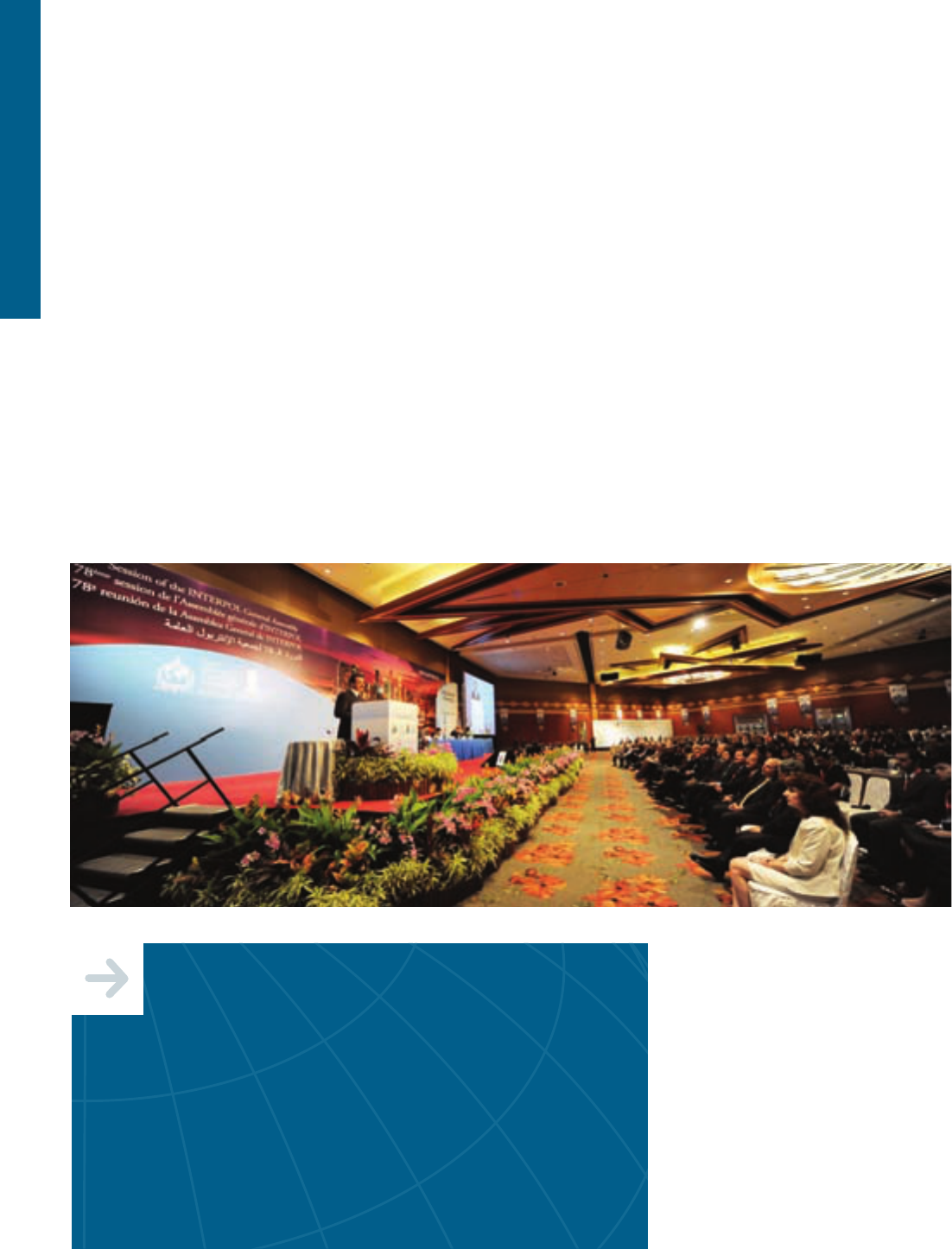
Our supreme governing body, the General
Assembly is composed of delegates
appointed by each member country.
It meets annually to take all important
decisions related to policy, resources,
working methods, finances, activities and
programmes. It also elects members of the
Executive Committee.
The 78
th
Session, held in Singapore from
11 to 15 October, opened with a special
INTERPOL–United Nations meeting,
bringing together more than 60 ministers
from around the world to discuss plans to
increase the role of police in peacekeeping
operations (see page 24).
The General Assembly adopted a number of
resolutions, including:
ρ Voting unanimously to admit Samoa
to the Organization, bringing our total
membership to 188 countries;
ρ Signing a co-operation agreement
with the Commission of Chiefs of
Police of Central America, Mexico
and the Caribbean, to establish our
Regional Bureau in San Salvador as
the permanent secretariat for the
Commission;
ρ Calling for member countries to
intensify the fight against the
dissemination of child sexual abuse
images on the Internet, by using all
available technical solutions including
site access-blocking;
ρ Endorsing the creation of a dedicated
information exchange network and
database (known as UMBRA) for
national anti-corruption entities;
ρ Calling for standard operating systems
in order to ensure the systematic
comparison of unidentified fingerprints
and DNA profiles taken from crime
scenes against INTERPOL’s databases.
G A
INTERPOL’
C
We aim to facilitate international police co-operation even where
diplomatic relations do not exist between particular countries. Action
is taken within the limits of existing laws in different countries and
in the spirit of the Universal Declaration of Human Rights, while our
constitution prohibits “any intervention or activities of a political,
military, religious or racial character”.
ICPO_AnnualReport2009_EN_12.indd 10 09/06/10 17:50
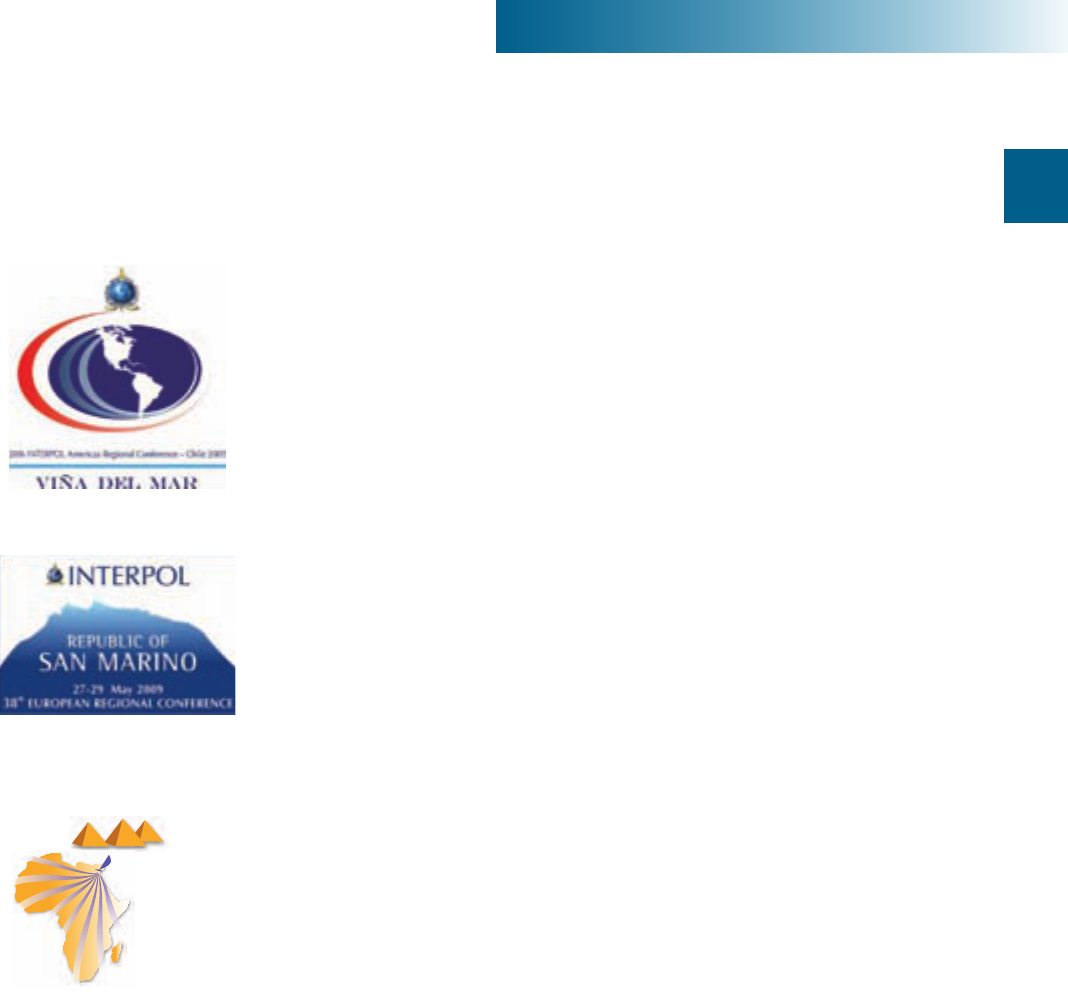
INTERPOL
CAIRO, EGYPT, 2009
11
INTERPOL • ANNUAL REPORT 2009
1. GOVERNANCE AND STRATEGY
20
th
americas regioNal coNFereNce,
viÑa del mar, chile, 1–3 april
Bringing together some 60 senior law enforcement officials from almost 30 countries, the
conference focused on the expansion beyond National Central Bureaus of INTERPOL’s vital
tools and services, notably for border security. Delegates highlighted the need to extend the
use of MIND/FIND technology to border control officers for instant checking of passports
against INTERPOL’s database of stolen and lost travel documents, as these are often used by
terrorists and other international criminals to conceal their identities when travelling.
38
th
europeaN regioNal coNFereNce,
saN mariNo, 27–29 may
The conference called for increased strategic regional planning and closer co-operation in
sharing police information. Among practical measures discussed, with the aim of enhancing
regional security, was the need for the increased exchange of DNA and fingerprint
data from crime scenes in order to solve transnational crimes and to locate and arrest
criminals attempting to evade justice. More than 130 delegates from 49 countries and 10
international organizations attended the conference.
20
th
aFricaN regioNal coNFereNce,
cairo, egypt, 7–9 July
The resources and investigative capacity of countries in Africa formed a major topic on
the conference agenda. By continuing to bolster police capabilities, both nationally and
regionally, cross-border operations into major crime areas such as drug trafficking, maritime
piracy and counterfeit medicines will see improved results. The conference was attended by
more than 160 law enforcement officials from almost 40 countries and eight international
organizations.
R C
The processing of personal data – such
as names and fingerprints – forms a key
activity at INTERPOL and is carried out
within a legal framework in order to protect
both the fundamentalrights of individuals
and the co-operation among police
internationally. The year 2009 was marked
by the following achievements:
ρ Entry into force of amendments to the
Regulations introducing a system of
information classification and levels of
confidentiality;
D
ρ Development of administrative
procedures for processing each level of
confidentiality;
ρ Strengthening the role and visibility
of the Commission for the Control
of INTERPOL’s Files (CCF), an
independent monitoring body, which
deals with queries from individuals
and advises and monitors the
Organization’s information processing;
ρ Raising awareness among National
Central Bureaus of procedures for
protecting data.
ICPO_AnnualReport2009_EN_12.indd 11 09/06/10 17:50

ICPO_AnnualReport2009_EN_12.indd 12 09/06/10 17:50
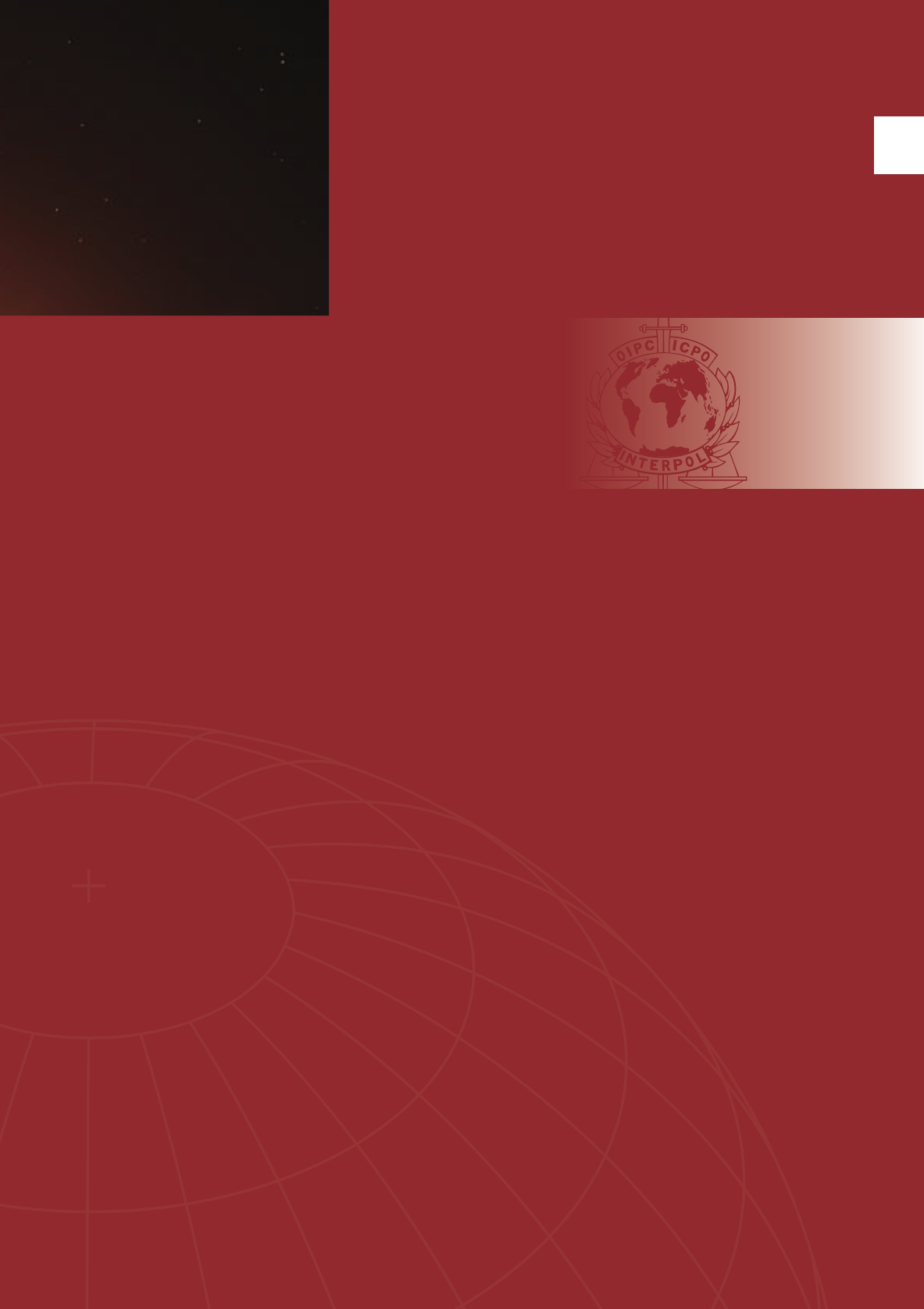
13
O 188 N C
B
, -
.
A GLOBAL PRESENCE
2
ICPO_AnnualReport2009_EN_12.indd 13 09/06/10 17:50

INTERPOL
At the heart of every INTERPOL member country is a National Central Bureau (NCB), linking
national police with our global network. It is typically a division of the national police
agency or investigation service and serves as the contact point for all INTERPOL activities
in the field. Staffed by highly trained police officers, NCBs are the lifeblood of INTERPOL,
contributing to our criminal databases and co-operating together on cross-border
investigations, operations and arrests.
We have six Regional Bureaus (RBs), which are permanent departments of the General
Secretariat, and a liaison office in Bangkok serving Southeast Asia. The duties of the RBs are
the same as those of the General Secretariat but focus on regional issues. Our new Regional
Bureau for Central Africa officially opened in Cameroon in November, equipped with the
latest technology, including two training rooms and a Command and Co-ordination Centre.
Harare, San Salvador and Yaoundé also act as the secretariat for their respective regional
committee of chiefs of police.
The following highlights show how close co-operation between multiple NCBs, local police
authorities, the Regional Bureau and regional police bodies led to successful activities in the
field.
AFRICA
child Workers rescued
Operation Bia resulted in the rescue of
54 child workers and the arrest of eight
people in connection with the illegal
recruitment of children. The children
were of seven different nationalities –
demonstrating the extent of transnational
child trafficking in the region – and had
been bought by plantation owners needing
crackiNg doWN oN the
illegal ivory trade
More than two tons of illegal ivory were
seized and more than 100 people arrested
in our largest-ever transnational operation
targeting wildlife crime across Africa.
Codenamed Operation Costa, it involved
officers from police, wildlife, customs
and national intelligence agencies across
six countries – Burundi, Ethiopia, Kenya,
Rwanda, Tanzania and Uganda – who
carried out inspections and raids on shops
and markets in addition to making checks
on suspect vehicles at border crossing
points.
cheap labour to harvest the cocoa and
palm plantations. Nearly 300 Ivorian law
enforcement officers participated in the
operation, planned by the RB in Abidjan
in conjunction with Ghanaian and Côte
d’Ivoire police authorities and supported by
our OASIS programme and by the German
governmental organization GTZ.
ICPO_AnnualReport2009_EN_12.indd 14 09/06/10 17:50
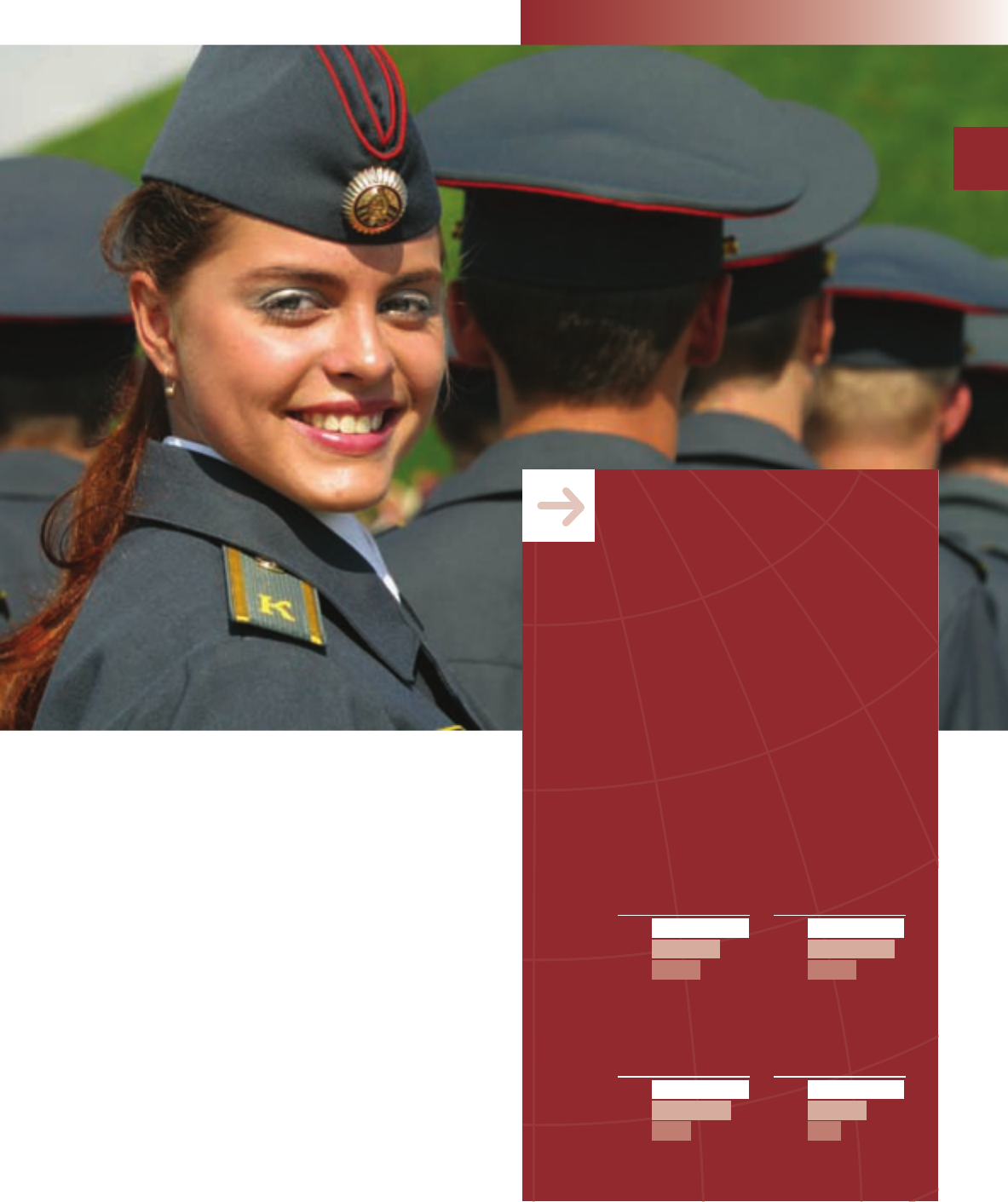
INTERPOL • ANNUAL REPORT 2009
2. A GLOBAL PRESENCE
15
tWelve southerN aFricaN couNtries
combiNe operatioNal Forces
A combined INTERPOL–SARPCCO operation resulted in the
seizure of 390 stolen vehicles. More than 1,000 police officers
took part in Operations Kalahari (Angola, Botswana, Namibia
and Zimbabwe), Hornkranz (Lesotho, Mozambique, South Africa
and Swaziland) and Namutoni (Malawi, Mauritius, Tanzania
and Zambia), supported by police officers from other SARPCCO
countries. Systematic checks were made at roadblocks, while
backyard garages and scrap yards were inspected and border
crossing points patrolled, with more than 20,000 vehicles checked
against our Stolen Motor Vehicles database. Prior to the operation,
the RB in Harare trained 259 officers on how to use our policing
services, tools and network, as well as motor vehicle identification
tactics.
D
INTERPOL
At the end of 2009, a total of 645 people
worked at the General Secretariat and Regional
Bureaus, representing 89 different nationalities.
Of these, 207 officials, or 32% of staff, were
law enforcement personnel seconded or loaned
by their national administrations. The remaining
68% (438 staff) were employed directly by
INTERPOL. Women made up 42% of the staff
(272 officials).
TOTAL STAFF
6452009
5022005
3812000
NATIONALITIES
892009
782005
542000
FEMALE
2722009
2102005
1382000
SECONDED FROM
MEMBER COUNTRY
2072009
1462005
952000
ICPO_AnnualReport2009_EN_12.indd 15 09/06/10 17:51
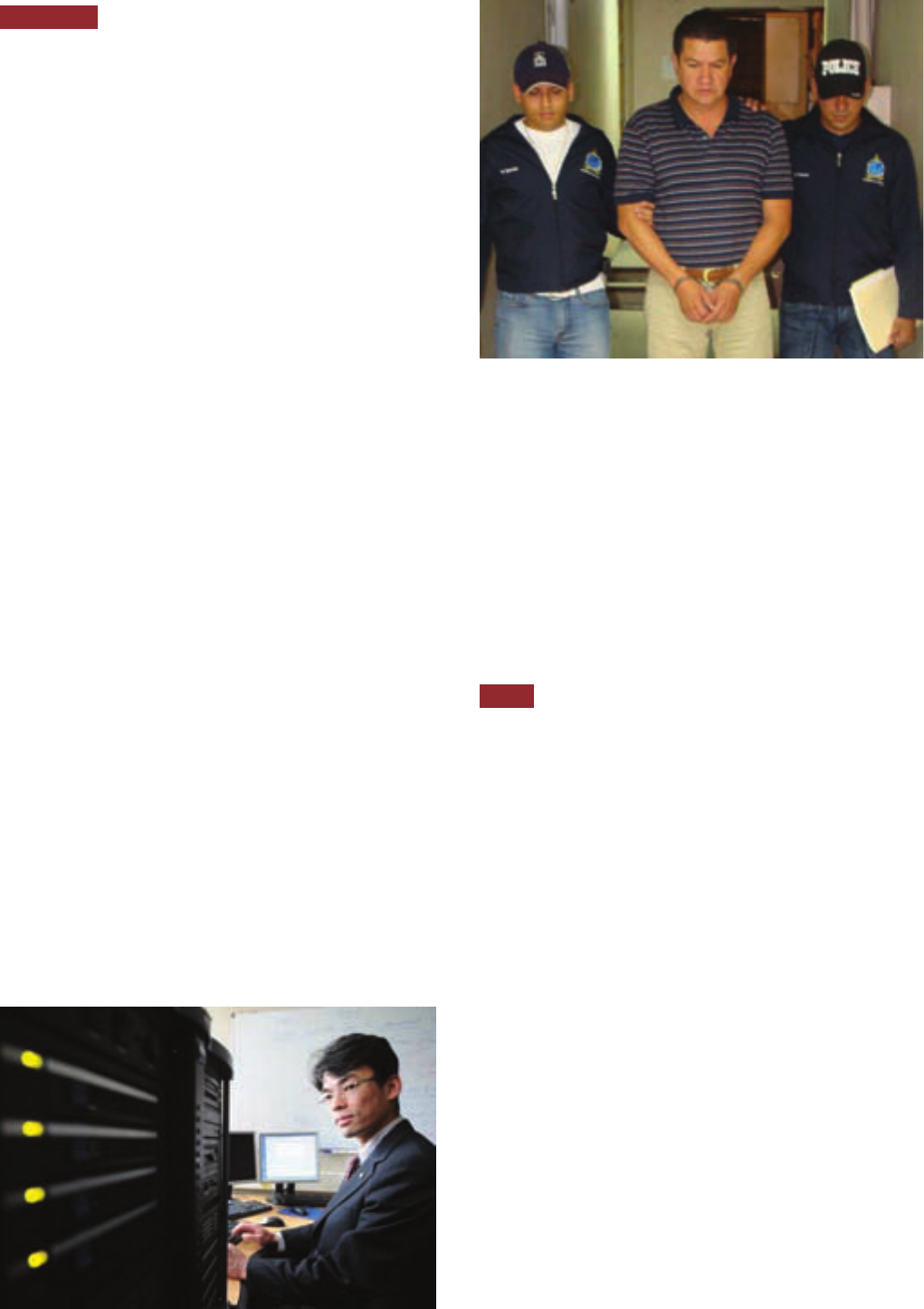
ASIA
iNvestigatiNg liNks betWeeN drug
traFFickiNg aNd terrorism
Investigative links between drug trafficking, money laundering
organizations and known terrorist organizations were discussed
at an operational meeting held in December at our liaison office
in Bangkok. Key players in the counter-terrorism intelligence
community came together with leading narcotics investigators from
across the world and UNODC representatives to discuss patterns
relating to recent seizures of acetic anhydride – an essential
chemical in the production of heroin – in Asia and the Middle East
with a view to identifying individuals and companies involved.
iNNovatioN iN data shariNg
The automatic transfer of data between the system (known as
e-ADS) of the Association of Southeast Asian Nations Chiefs of
Police (ASEANAPOL) and INTERPOL became operational. This is
the first time that a regional police organization has implemented
the automatic upload of their own data to our systems, and has
resulted in the contribution of data on stolen motor vehicles
(SMV) by five ASEANAPOL members for the first time, with a very
significant increase in the overall contribution rate to the INTERPOL
SMV database by ASEANAPOL member countries.
AMERICAS
arrest oF a WaNted drug traFFicker
A major investigation by five NCBs, the RB in Buenos Aires and the
General Secretariat led to the arrest of senior drug cartel member
William Cobo Idrobo at Panama’s Tocumen International airport
in September. Following weeks of investigations, the NCBs –
Colombia, Mexico, Panama, Peru and the USA – ascertained that
the Colombian national was travelling from Mexico to Panama and
co-ordinated his arrest on arrival. Wanted by Peru for serious drug
offences, Cobo Idrobo is believed to have been engaged in the
manufacture of metamphetamines and the sale of cocaine hydro-
chlorate.
aNalysiNg aNd shariNg data oN stoleN
vehicles
Under the mandate of the CJPCAMC, Huracán II saw co-operation
between seven countries in Central America plus Mexico and the
Dominican Republic, with the purpose of identifying stolen vehicles
in the region and dismantling the criminal networks behind the
crime. A total of 594 database matches were identified and 53
vehicles impounded. Operational activities were backed up by
training, provided by the RB in San Salvador, and an evaluation
meeting in November resulted in 16 diverse recommendations to
improve the effectiveness of vehicle investigations in the region.
ICPO_AnnualReport2009_EN_12.indd 16 09/06/10 17:51
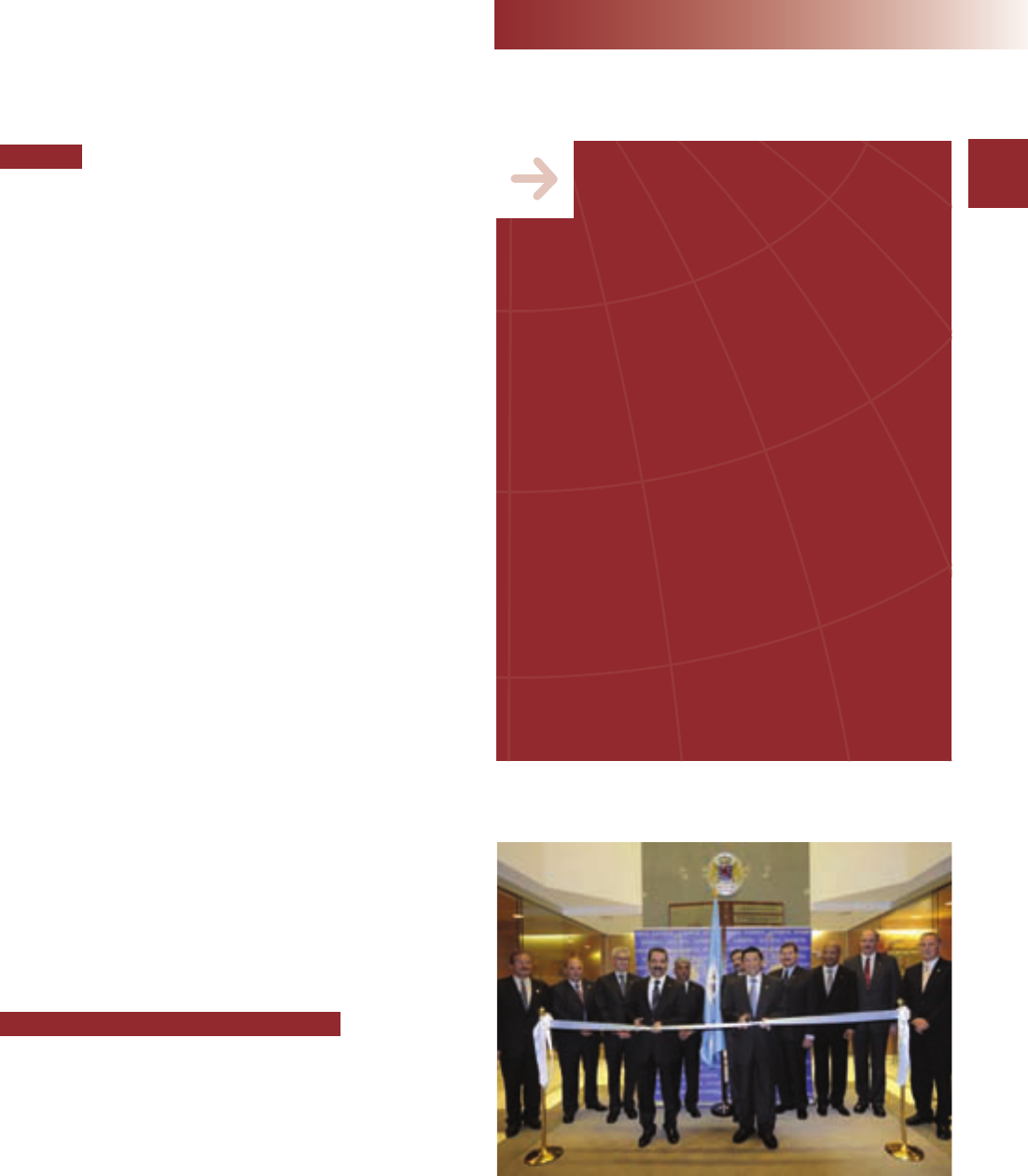
INTERPOL • ANNUAL REPORT 2009
2. A GLOBAL PRESENCE
17
EUROPE
three members oF piNk paNthers gaNg
arrested
The Pink Panthers gang is responsible for armed jewel robberies
worth millions of euros committed across the world. Rifat
Hadziahmetovic, a national of Montenegro and subject of an
INTERPOL Red Notice, was arrested by Cypriot police after an
identity check against our databases revealed he was travelling on
a forged passport, and fingerprint checks confirmed his identity.
Two further individuals were arrested in Paris in May thanks to
collaborative efforts between the Swiss and French authorities, in
the wake of a jewellery raid in Lausanne, Switzerland, the previous
week.
NeW regioNal approach to operatioNs
Improving regional policing among eight countries of Southeast
Europe by adopting a common approach to planning and
conducting joint operations was the aim of a new project, BESA,
initiated in December. Supported by the Southeast Europe Police
Chiefs Association, BESA provides analytical support and facilitates
information sharing using INTERPOL’s global communication tools
and brings together Albania, Bosnia and Herzegovina, Bulgaria,
Croatia, the Former Yugoslav Republic of Macedonia, Moldova,
Montenegro and Serbia. BESA’s first joint operation saw several
arrests and seizures.
UNITED NATIONS AND EUROPEAN UNION
WorkiNg With the uN iN areas oF JoiNt
coNcerN
Our Office of the Special Representative to the United Nations in
New York enabled us to work more closely and gain more visibility
with those UN departments and entities that share our mission of
preventing and combating transnational crime, including the UN
Department of Peacekeeping Operations (UNDPKO), UN Office
on Drugs and Crime (UNODC) and UN Department of Safety and
Security (UNDSS).
A notable achievement with UN partners during the year was the
launch of the West Africa Coast Initiative, which will support the
Economic Community of West African States to strengthen national
and cross-border capacities in fighting organized crime and drug
trafficking.
NeW brussels oFFice eNhaNces eu
relatioNship
The Office of the Special Representative of INTERPOL to the
European Union was officially inaugurated in September 2009,
marking a milestone in the continuing collaboration between the
two organizations. The opening of the Brussels office is the latest
step in identifying and developing new areas for co-operation
between INTERPOL and the EU in joint efforts to enhance regional
and global security.
W
In many regions, the heads of national police
forces meet in formal committees to arrange
closer co-operation on issues of common
interest. These include facilitating cross-border
operations, harmonizing legislation, improving
the dissemination of criminal intelligence and
developing shared training structures. We
work closely with the four organizations in
Africa (EAPCCO – eastern Africa, WAPCCO
– western Africa, SARPCCO – southern
Africa and CAPCCO – central Africa) as
well as the Commission of Police Chiefs of
Central America, Mexico and the Caribbean
(CJPCAMC) and the Association of Southeast
Asian Nations Chiefs of Police (ASEANAPOL).
ICPO_AnnualReport2009_EN_12.indd 17 09/06/10 17:51

F
During 2009, we supported a wide range of field operations at a national, regional or
international level. Often preceded by training programmes and providing field access to
our databases, this operational support resulted in the arrests of criminals, seizure of stolen
or counterfeit goods and dismantling of criminal networks. Some of our major successful
operations from the year are listed below:
OPERATION LOCATION DURATION RESULTS
FUGITIVES
INFRA-RED Australia, Belgium, Canada,
Colombia, Jamaica, United
Kingdom, United States
One month
ρ
45 fugitives, wanted for serious crimes such as murder,
rape and drug trafficking, were either located or arrested
worldwide.
TRAFFICKING IN CHILDREN
BIA Côte d’Ivoire Two days
ρ
Nearly 300 law enforcement officers took part;
ρ
54 child workers rescued;
ρ
Eight people arrested in connection with the illegal
recruitment of children.
ENVIRONMENTAL CRIME
COSTA Burundi, Democratic Republic of
Congo, Ethiopia, Kenya, Rwanda,
Tanzania, Uganda
Two days
ρ
Seizure of more than two tons of illegal ivory;
ρ
Arrest of more than 100 people;
ρ
Firearms, ammunition, vehicles and other illegal wildlife also
seized.
HAZARDOUS
WASTE
Canada, USA Two days
ρ
350 vehicles checked;
ρ
140 violations identified;
ρ
Eight investigations launched.
OXOSSI Brazil, Czech Republic,
Indonesia, Portugal
One day
ρ
450 officers took part in nine Brazilian states;
ρ
102 arrest warrants issued;
ρ
140 search warrants served;
ρ
Six Red Notices issued;
ρ
More than 3,500 wildlife specimens seized.
ICPO_AnnualReport2009_EN_12.indd 18 09/06/10 17:51
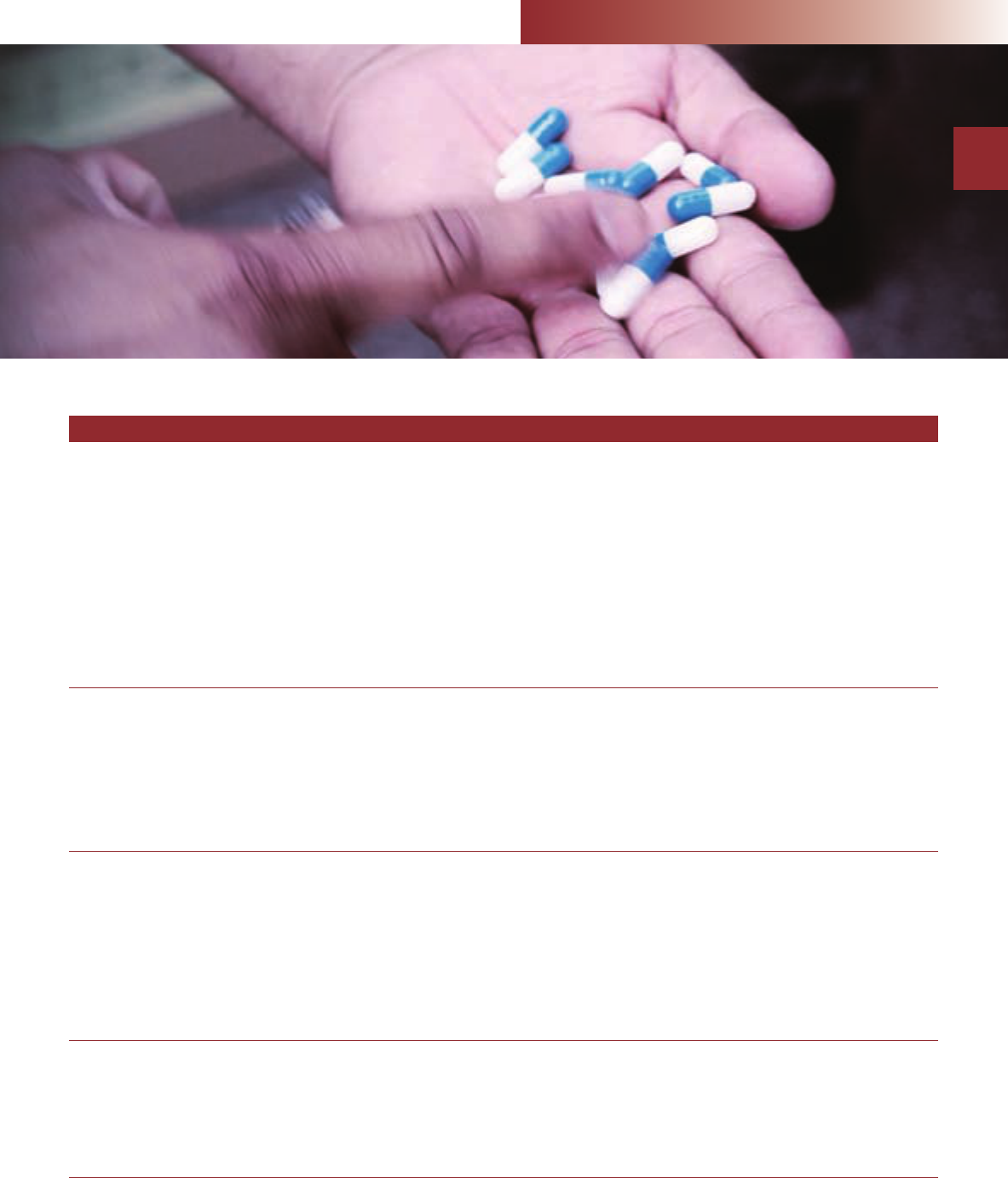
INTERPOL • ANNUAL REPORT 2009
2. A GLOBAL PRESENCE
19
OPERATION LOCATION DURATION RESULTS
COUNTERFEIT MEDICAL PRODUCTS
PANGEA II 25 countries: Australia, Austria,
Belgium, Canada, Czech
Republic, Denmark, France,
Germany, Ireland, Israel, Italy,
Liechtenstein, Netherlands,
New Zealand, Norway,
Poland, Portugal, Singapore,
South Africa, Spain, Sweden,
Switzerland, Thailand, UK, USA
Five days
ρ
Identification of more than 1,400 websites engaged in illegal
activity;
ρ
More than 150 websites taken down;
ρ
More than 21,200 packages inspected by regulators and
customs officials;
ρ
More than 2,350 packages seized.
FIELA Lesotho Five days
ρ
Raids carried out on 50 establishments;
ρ
Eight shops and pharmacies closed and investigated for
operating illegal businesses without the necessary licenses
and controls;
ρ
45 officers trained in advance of the operation.
MAMBA II Kenya, Tanzania, Uganda One month
ρ
More than 270 premises targeted, including pharmacies,
hospitals, warehouses and shops;
ρ
Seizure of hundreds of counterfeit, unregistered and banned
medical products;
ρ
Identification of criminal links across the region;
ρ
83 police cases opened.
STORM II Cambodia, China, Indonesia,
Laos, Myanmar, Singapore,
Thailand, Vietnam
Five months
ρ
More than 30 arrests;
ρ
More than 100 pharmacies and illegal drug outlets closed;
ρ
Seizure of some 20 million counterfeit and illegal medical
products.
ZAMBEZI Malawi, Swaziland, Zambia,
Zimbabwe
Three days per
country
ρ
172 law enforcement officers trained;
ρ
305 officials took part in operations;
ρ
263 premises inspected;
ρ
19 premises closed;
ρ
Thousands of products seized, including antimalarials,
antibiotics, steroids and erectile dysfunction medicines.
ICPO_AnnualReport2009_EN_12.indd 19 09/06/10 17:51

OPERATION LOCATION DURATION RESULTS
STOLEN MOTOR VEHICLES (SMV)
SAMBA Bosnia and Herzegovina,
Croatia, Montenegro, Serbia
Three days
ρ
19 members of the INTERPOL SMV Task Force were deployed
to support local border police;
ρ
Approximately 1,300 cars were inspected;
ρ
14 vehicles, including several high-value models, were
identified as stolen and seized.
ALMARAS Spain Five days
ρ
10 officers from the INTERPOL SMV Task Force were deployed
to support Spanish law enforcement officers;
ρ
More than 3,500 motor vehicles were inspected;
ρ
30 cars identified as stolen and seized;
ρ
25 people arrested.
BUNINI Burkina Faso, Nigeria Five days per
country
ρ
360 officers trained on techniques for identifying and
investigating stolen vehicles;
ρ
More than 4,100 checks carried out against the SMV
database;
ρ
12 stolen vehicles seized, found to come from Europe and
Japan.
GBANDA III Cameroon, Central African
Republic, Chad, Congo, Gabon
Four to six days
per country
ρ
860 officers received basic training in their home countries;
ρ
More than 18,500 vehicles were checked;
ρ
68 vehicles impounded;
ρ
Arrest of one car trafficker, three drug dealers and 17 illegal
immigrants.
UMOJA III Burundi, Rwanda, Tanzania Five days per
country
ρ
174 officers trained;
ρ
3,780 vehicles checked physically and compared against the
SMV database;
ρ
110 stolen vehicles identified;
ρ
Around 200 kgs of cannabis seized;
ρ
28 illegal immigrants intercepted;
ρ
Illegal ivory seized;
ρ
127 people arrested.
HURACAN II Belize, Costa Rica, Dominican
Republic, El Salvador,
Guatemala, Honduras, Mexico,
Nicaragua, Panama
Two weeks
ρ
594 vehicles positively identified through the SMV database;
ρ
53 vehicles impounded.
ICPO_AnnualReport2009_EN_12.indd 20 09/06/10 17:51
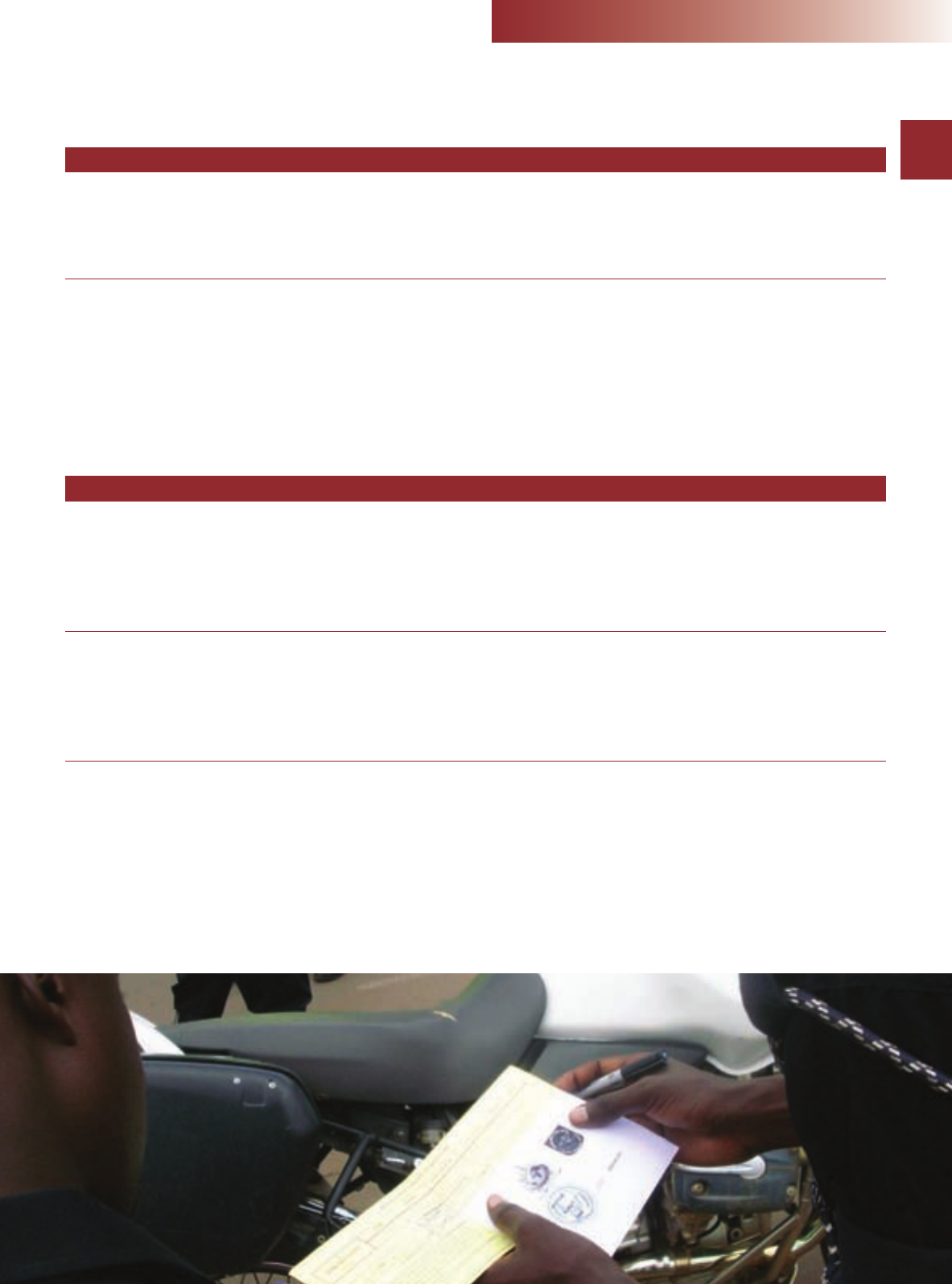
INTERPOL • ANNUAL REPORT 2009
2. A GLOBAL PRESENCE
21
OPERATION LOCATION DURATION RESULTS
DRUG TRAFFICKING
ABICOKE Côte d’Ivoire, France Investigations
lasted almost a
year
ρ
Arrest in Abidjan of the two main suspects in a network
responsible for trafficking huge quantities of cocaine from
Côte d’Ivoire to Europe.
CANS Belgium, France, the
Netherlands, Nigeria,
Switzerland, Turkey
One month
ρ
Dismantling of an international drug network between
Western Africa and Europe;
ρ
Arrest of two major drug traffickers in Nigeria and two in
Europe, along with a number of drug couriers.
STOLEN MOTOR VEHICLES, DRUG AND FIREARM TRAFFICKING, ILLEGAL IMMIGRATION
KALAHARI Angola, Botswana, Namibia,
Zimbabwe
Two to three
days per country
ρ
38 officers trained;
ρ
4,796 vehicles inspected;
ρ
45 vehicles confirmed stolen;
ρ
646 illegal immigrants arrested.
HORNKRANZ Lesotho, Mozambique, South
Africa, Swaziland
Two to three
days per country
ρ
More than 5,200 vehicles inspected;
ρ
More than 180 positive matches in the SMV database;
ρ
Seizure of some 65kg of cannabis and arrest of five people;
ρ
Arrest of 75 illegal immigrants.
NAMUTONI Malawi, Mauritius, Tanzania,
Zambia
Two to three
days per country
ρ
183 officers trained;
ρ
11,090 vehicles inspected;
ρ
144 vehicles confirmed as stolen;
ρ
Quantities of drugs were also seized (more than 800kg of
cannabis and more than 200 kg of khat);
ρ
81 people arrested in connection with the drug seizures;
ρ
25 illegal immigrants arrested.
ICPO_AnnualReport2009_EN_12.indd 21 09/06/10 17:51

P
Our commitment to police training as one of our core functions was demonstrated by a
significant increase in the number of sessions delivered during the year, reaching 165 of
our 188 member countries. In 2009, we ran more than 140 operational training sessions,
benefiting more than 4,500 officers from National Central Bureaus (NCBs) and law
enforcement agencies: an increase of two-thirds on 2008. Some 84% of training sessions
were delivered in-country, with only 16% of sessions carried out at the General Secretariat.
Our training portfolio ranges from practical courses in specific crime areas and investigative
techniques for frontline officers, to high-level management programmes for senior police
staff. The diversity and impact of our work can be seen in the following examples:
iNteractive oNliNe learNiNg
The General Assembly in October saw the official launch of the INTERPOL Global Learning
Centre (IGLC), a web-based portal providing authorized users with “one-stop-shop” access
to a comprehensive range of online learning opportunities, available via our restricted
websites. From this portal, law enforcement agencies, NCBs, Regional Bureaus and staff
at the General Secretariat can access online learning resources about specific areas of
law enforcement along with directories of police training and university websites from
around the world. Online learning is an ideal complement to traditional training methods,
particularly given the Organization’s international membership and the need to work across
geographical boundaries and time zones.
30 oFFicers take iNterNatioNal co-operatioN course
The INTERPOL International Police Training course was delivered twice in 2009, once in English
and once in French, to train highly-qualified officers who have responsibilities in dealing with
international police co-operation. The participants gained knowledge and skills in international
police co-operation and specialized crime techniques including use of the network of NCBs
and INTERPOL’s numerous systems and services. Thirty participants from 30 different countries
were trained, of whom 17 were from Africa and funded by the OASIS programme.
regioNal eXperieNce For aFricaN oFFicers
Operationally focused, the Police Officer Development Programme enables African countries
to assign experienced frontline officers to an INTERPOL Regional Bureau for a one-year
training period, to experience how the Organization adds value to policing at regional and
international level. Officers carry out practical assignments, such as organizing working
meetings and cross-border operations. Three officers completed their secondments in 2009.
ICPO_AnnualReport2009_EN_12.indd 22 09/06/10 17:51

INTERPOL • ANNUAL REPORT 2009
2. A GLOBAL PRESENCE
23
asiaN oFFicers learN about iNterpol tools
The 8
th
regional police training course for officers from NCBs in Asia and South Pacific was
held in July in Hong Kong with the aim of promoting the use of new INTERPOL services,
strategies and policing tools. A total of 38 trainees from 23 NCBs and two Regional Bureaus
gained knowledge and skills in the practical use of INTERPOL tools, including the I-24/7
network and wide range of databases.
cascadiNg traiNiNg iN bioterrorism preveNtioN
Just one example of the wealth of training courses in specialized crime areas, train-the-
trainer initiatives took place in Paraguay and the United Arab Emirates, providing practical
knowledge and skills on preventing, responding to and investigating bioterrorist attacks.
More than 70 individuals from 23 countries took part, with the expectation that participants
will cascade this specialist knowledge to national police forces and related agencies in their
own countries.
P
Trafficking in human beings
16
Drugs and criminal organizations
24
Financial and high-tech crime
14
Public safety and terrorism
6
Fugitives
2
Disaster victim identification,
DNA and fingerprints
9
Tools and databases
48
Analysis
12
Others
10
ICPO_AnnualReport2009_EN_12.indd 23 09/06/10 17:51
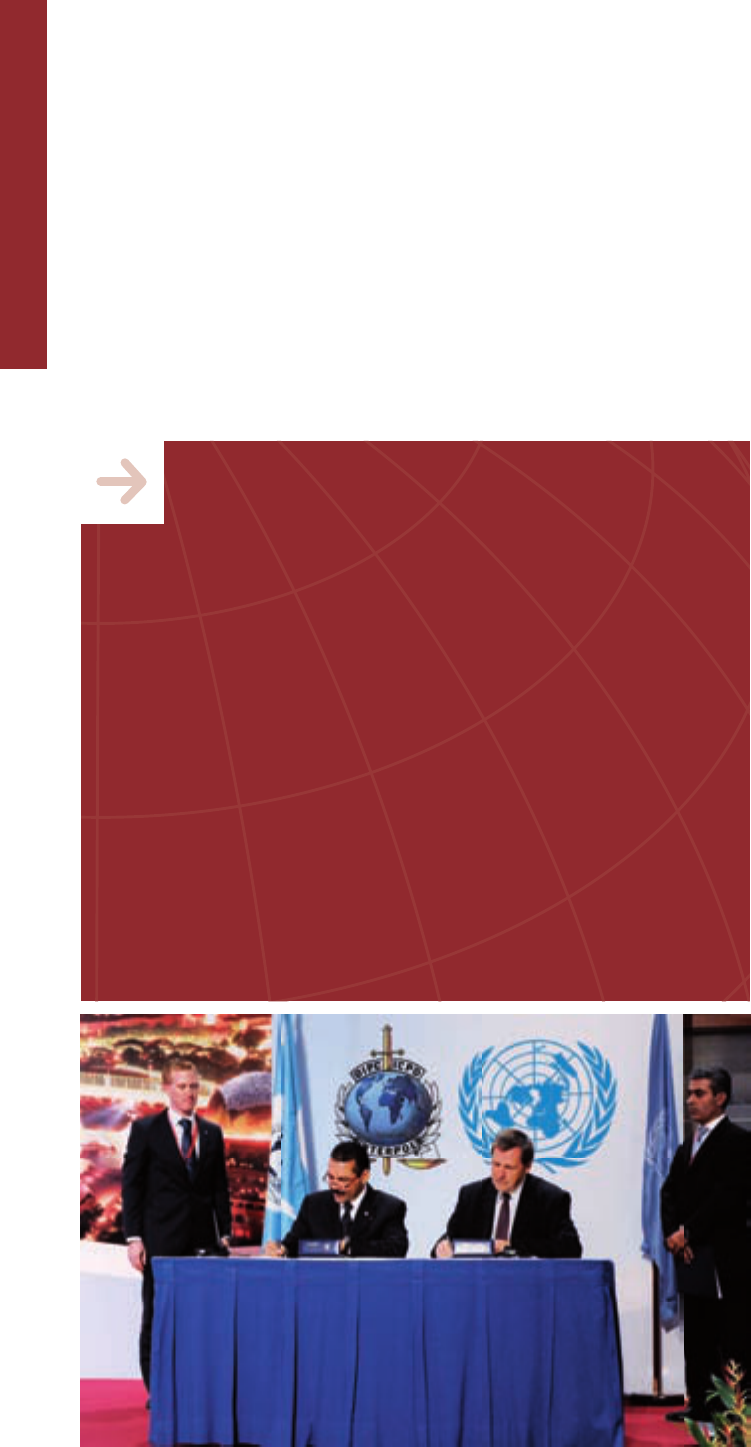
I
Co-operation agreements with other international organizations, regional bodies,
government agencies and the private sector allow us to carry out the tasks entrusted to
us by our member countries more effectively and on a wider scale. Co-operation with
INTERPOL is sought primarily in three areas: connection to our secure global police network
and databases; establishing joint projects; and training of police officers from member
countries. During 2009, we negotiated 20 new co-operation agreements, of which eight
were finalized, bringing to 45 the total signed since 1997.
streNgtheNiNg ties With
the uNited NatioNs
We signed three co-operation
arrangements with the United Nations in
2009:
ρ
UNITED NATIONS DEPARTMENT OF
PEACEKEEPING OPERATIONS:
to augment the role and capacity of
police in UN peacekeeping missions
worldwide;
ρ
UNITED NATIONS DEPARTMENT OF
POLITICAL AFFAIRS (UNDPA):
to increase the number of UN
Sanctions Committees able to request
the issue of INTERPOL–United Nations
Security Council Special Notices, and
allow UNDPA direct access to our
police information system;
ρ
SPECIAL TRIBUNAL FOR LEBANON:
to provide direct access to our police
information system, assistance in
the search for fugitives and suspects,
issuing of INTERPOL Notices and crime
analysis support.
I
The INTERPOL–United Nations meeting in October established a
plan of action to promote international police peacekeeping as an
essential counterpart to the military in helping re-establish the rule
of law in countries suffering from conflict, and to prevent terrorists
and organized criminals from exploiting countries with weak
institutions. More than 60 justice and home affairs ministers joined
senior police officials from 153 countries in endorsing the declaration
between INTERPOL, the United Nations Department of Peacekeeping
Operations (DPKO) and participating governments. Within this
partnership, we will deliver international police expertise and frontline
access to our global resources, to help post-conflict countries build
sustainable peace.
ICPO_AnnualReport2009_EN_12.indd 24 09/06/10 17:51
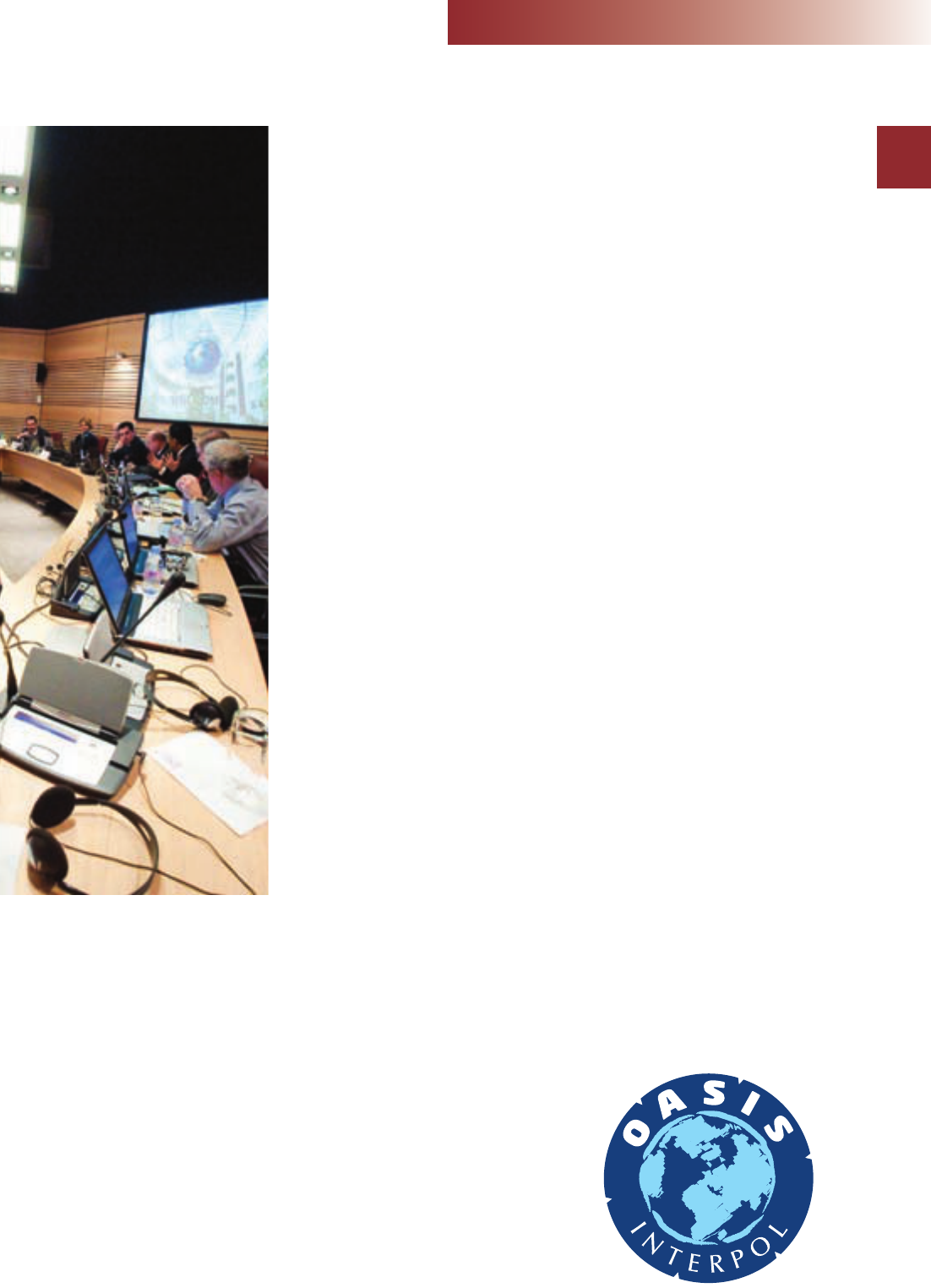
INTERPOL • ANNUAL REPORT 2009
25
2. A GLOBAL PRESENCE
oasis empoWers police iN aFrica
Funded by the German government, the OASIS programme empowers police through three
main functions: capacity building, infrastructure and operations. Launched in Africa in 2008,
this tiered approach enables the region to develop its own sustainable way of working.
In 2009, specialized training addressed areas such as criminal intelligence analysis, forensics
and crime scene work. Other courses targeted specific crime areas including counterfeit
medical products, drug trafficking and wildlife crime. Importantly, this type of training is
followed by operations in the field, enabling officers to put their newly acquired skills into
practice.
iNterNatioNal aNd regioNal collaboratioN
During the course of the year, we worked with partners across the globe to share skills
and knowledge and to establish a clear basis for joint activities and operations. As well as
furthering productive partnerships with organizations of regional chiefs of police
(see page 17), we worked with the following bodies:
ρ
EUROPOL: under an agreement for a new joint INTERPOL-Europol global police
initiative to combat maritime piracy, Europol will lead an analysis project while we will
centralize the collection of data on suspected pirates. In addition, an ongoing exchange
programme allowed four Europol and six INTERPOL officers this year to obtain a
greater awareness of their counterparts’ work, while each organization has a full-time
liaison officer whose participation in working meetings increased the exchange of
operational information.
ρ
AFRICAN UNION COMMISSION: a two-day meeting in April identified methods to
better fight international crimes such as human trafficking, drug smuggling and
terrorism;
ρ
PACIFIC ISLANDS CHIEFS OF POLICE CONFERENCE (PICP): we agreed in September to
work more closely with PICP in delivering training and operations in the South Pacific
region;
ρ
CENTRAL ASIAN REGIONAL INFORMATION AND COORDINATION CENTRE (CARICC):
we were granted observer status at CARICC in March. The preparation of a co-
operation agreement is ongoing;
ρ
WORLD ANTI-DOPING AGENCY (WADA): a Memorandum of Understanding signed
in February provides a clear framework for co-operation in tackling the use of
performance-enhancing drugs in sport;
ρ
FORUM OF INCIDENT RESPONSE AND SECURITY TEAMS (FIRST): in July, we became an
active member of FIRST which fosters co-operation in computer network and systems
security incident prevention and response.
ICPO_AnnualReport2009_EN_12.indd 25 09/06/10 17:51

ICPO_AnnualReport2009_EN_12.indd 26 09/06/10 17:51

27
O
. A -
.
TOOLS AND SERVICES
FOR POLICE
3
ICPO_AnnualReport2009_EN_12.indd 27 09/06/10 17:51

D
NomiNal data
The number of searches of nominal data leapt from some 7 million in 2008 to more than
77 million in 2009. Database matches also saw a significant rise, from about 97,000 in
2008 to more than 126,000 in 2009.
FiNgerpriNts
At the INTERPOL General Assembly in October, heads of the Organization’s National Central
Bureaus voted unanimously to develop the systematic sharing and updating of fingerprints
in order to increase the number of records in the system and the potential for positive
matches.
dNa proFiles
The DNA Charter and Written Undertaking, signed by 31 countries, enables signatory
countries to upload and search the DNA Profiles database directly via the I-24/7 network,
without sending a request through the General Secretariat. 74 positive database matches
were identified during the course of the year, compared to 27 in 2008.
stoleN aNd lost travel documeNts
Border control officials made 326 million searches of our Stolen and Lost Travel Documents
database in 2009 as governments became increasingly aware of its value in catching
criminals, who often travel using falsified passports.
child abuse images
In 2009, the INTERPOL International Child Sexual Exploitation (ICSE) database was
introduced to replace the INTERPOL Child Abuse Image Database (ICAID).
See page 44 for further details.
stoleN Works oF art
Direct online access to our Stolen Works of Art database was made available in August,
enabling authorized users to instantly verify if an item is among the 34,000 registered
objects.
stoleN motor vehicles
More than 9 million searches of the Stolen Motor Vehicles (SMV) database were carried
out, (almost three times as many as during 2008), as a result of which an average of some
2,200 vehicles are detected as reported stolen every month.
101,285+116%2009
46,8862005
RECORDS
1,006+1,729%2009
552005
HITS
157+78%2009
882005
PARTICIPATING COUNTRIES
FINGERPRINTS
94,223+72%2009
54,8762005
RECORDS
74+51%2009
49
2005
HITS
55+72%2009
322005
PARTICIPATING COUNTRIES
DNA PROFILES
77,777,708+17,169%2009
450,3842005
SEARCHES
126,663+154%2009
49,9022005
HITS
NOMINAL DATA
ICPO_AnnualReport2009_EN_12.indd 28 09/06/10 17:51
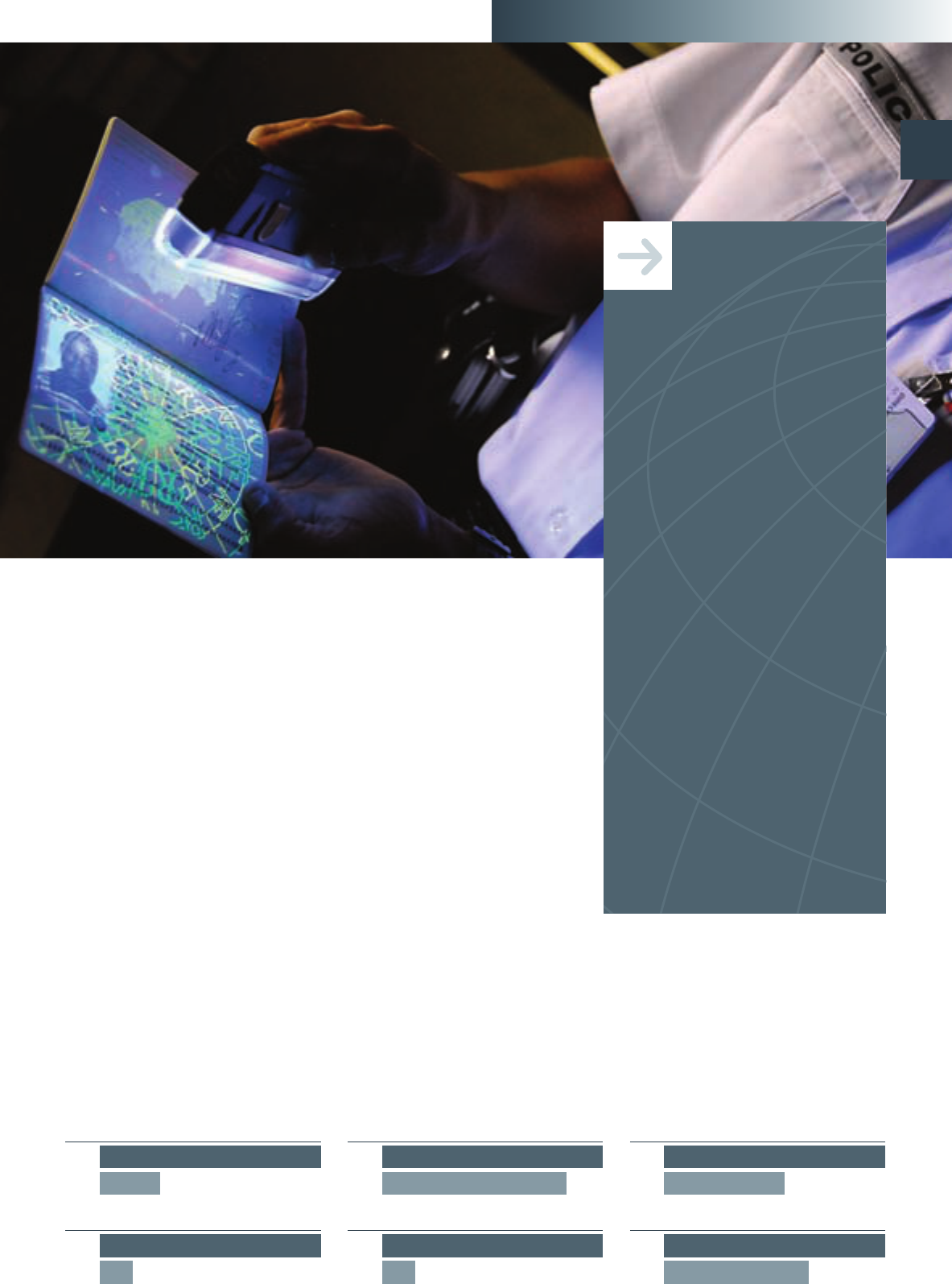
INTERPOL • ANNUAL REPORT 2009
29
3. TOOLS AND SERVICES FOR POLICE
326,355,744+153,209%2009
212,8752005
SEARCHES
28,174+4,143%2009
6642005
HITS
STOLEN AND LOST TRAVEL
DOCUMENTS
6,222,371+89%2009
3,296,2632005
RECORDS
26,434+58%2009
16,7732005
HITS
STOLEN MOTOR VEHICLES
34,719+22%2009
28,5692005
RECORDS
5,097+1,676%2009
2872005
SEARCHES
STOLEN WORKS OF ART
crimiNal iNtelligeNce aNalysis
The Real-time Analytical Intelligence Database (RAID) application is an analytical
database created by the US National Drug Intelligence Center which we are
authorized to install for member countries free of charge. In conjunction with its
deployment, we offer training to assist users in cataloguing and analysing information
collected from seized evidence or other intelligence sources, and to organize and
share case information of criminal investigations. In 2009, nearly 20 officers from
the Chilean National Police and more than 60 officers from countries in Africa were
trained on the application.
missiNg persoNs aNd uNideNtiFied bodies
In 2009, we secured EUR 2.3 million of funding from the European Commission
for the development of a Missing Persons and Unidentified Dead Bodies database.
The project is being developed by a cross-sector consortium led by INTERPOL and
including police agencies, universities and private companies.
D
A man attempting to enter
South Africa was arrested at
Johannesburg airport after a
check against our databases
revealed he was travelling
on a passport stolen in
Pakistan eight years ago. The
document was one of 2,000
blank passports stolen from a
regional office in Abbottabad
in 2001 and registered in
the Stolen and Lost Travel
Documents (SLTD) database by
Pakistan. The stolen passport
was identified thanks to
technical solutions that we
have deployed throughout
South Africa which enable
frontline officers to run direct
checks against the SLTD
database.
ICPO_AnnualReport2009_EN_12.indd 29 09/06/10 17:51

E INTERPOL
We run a secure global police communications network, known as I-24/7, which enables
police in all 188 member countries to share data and intelligence in real time, round
the clock. In 2009, some 12.5 million messages were exchanged between the General
Secretariat headquarters in Lyon, France, and our National Central Bureaus (NCBs),
compared to 11.2 million in 2008. These messages often contain vital and urgent police
intelligence, crucial to operations and investigations.
We are now focusing on extending access to INTERPOL services
beyond the NCB and out to frontline officers such as immigration
and customs officials. To date, 95 countries have expanded
INTERPOL services to related agencies using technical devices
known as MIND/FIND (Mobile and Fixed INTERPOL Network
Databases).
External funding from the European Union supported the
expansion of access to our network and databases to field officers
across Central Asia and in Russia through the TACIS projects.
Officers in 50 locations across Kazakhstan, Kyrgyzstan, Tajikistan,
Turkmenistan and Uzbekistan began to receive technical,
operational and training support, while a four-year project in
the Russian Federation was completed with the deployment of
equipment, training and police services to 42 sites across the
country.
A partnership agreement was signed with Germany’s GTZ agency
to implement an EU-funded project to assist Afghanistan, Iran and
Pakistan in tackling organized crime in the region by reinforcing
the exchange of intelligence via I-24/7. Another agreement
will see our services deployed to remote sites in Cambodia
and Vietnam as part of an EU-ASEAN Migration and Border
Management Programme.
A number of countries in Africa saw extended access to INTERPOL
services under the OASIS programme, including Botswana, Côte
d’Ivoire, Ghana, Lesotho, Senegal and Swaziland.
O
Host in 2010 to the Winter Olympic Games
and a G8 meeting, Canada boosted its policing
for major events by giving frontline officers
throughout the country direct access to our
global databases. Some 66,000 officers from
more than 380 law enforcement agencies
nationwide can now instantly check if a person
is wanted internationally or is using a fraudulent
travel document.
S N
Securing a border crossing where there is no
electricity supply was one of the challenges
for an INTERPOL IMEST supporting security
operations for the 1
st
Community of Sahel-
Saharan States (CEN-SAD) Games in February.
The IMEST installed a solar powered generator
at the Torodi border point in Niger, one of
four major border crossings in Niger which
were equipped with laptops and MIND/FIND
technology for the event. Police and border
officers conducted almost 7,000 checks of our
databases during the 10 days of the Games.
ICPO_AnnualReport2009_EN_12.indd 30 09/06/10 17:51

INTERPOL • ANNUAL REPORT 2009
31
3. TOOLS AND SERVICES FOR POLICE
I
A F
An IRT assisted the Brazilian and French police
in identifying the victims of June’s Air France
AF447 plane tragedy off the coast of Brazil in
which 228 people from 32 countries lost their
lives. The IRT acted as a liaison point in collecting
ante-mortem data (such as dental and medical
records, fingerprints and DNA from the victims’
homes or family members) and assisted experts
leading the operation to collect post mortem
data from the remains of the recovered victims.
The international co-ordinated effort led to the
identification of all 51 recovered victims.
S
Member countries increasingly request our services in the field
during a crisis situation or for a major event with public security
implications.
INTERPOL Incident Response Teams (IRTs) deliver an emergency
response and/or specialized investigative support and can be
deployed in a matter of hours. They are multi-disciplinary and
comprise experts from different member countries. Seven IRTs
deployed in 2009 delivered support to incidents as diverse as the
assassination attempt on the Prime Minister in Lesotho, a plane
crash in the Comores and earthquakes in Indonesia.
INTERPOL Major Event Support Teams (IMESTs) assist with the
advance planning, preparation and implementation of security
arrangements at events with a high public profile. The training and
infrastructure implemented for the event benefit the country on a
long-term basis. Fifteen IMESTs in 2009 assisted in events ranging
from the General Assembly of the Organization of American States
in Honduras and the FIFA under-20s World Cup in Egypt to the G8
Summit in Italy.
C
C-
C
The Command and Co-ordination Centre (CCC) is the link between
the General Secretariat, regional offices and National Central
Bureaus in all 188 member countries. Staffed 24 hours a day, 365
days a year, the CCC operates in all four official languages (Arabic,
English, French and Spanish) and serves as the first point of
contact for any member country faced with a crisis situation.
The CCC monitors news channels and police messages exchanged
between member countries to ensure the full resources of the
Organization are ready and available whenever and wherever they
may be needed.
In 2009, the CCC at the General Secretariat doubled in size,
while we plan to open additional CCCs across the world in order
to bolster our round-the-clock capability and provide a more
tailored response to the regions. The first new site will be in our
Regional Bureau in Buenos Aires, where construction work began
in September.
ICPO_AnnualReport2009_EN_12.indd 31 09/06/10 17:51
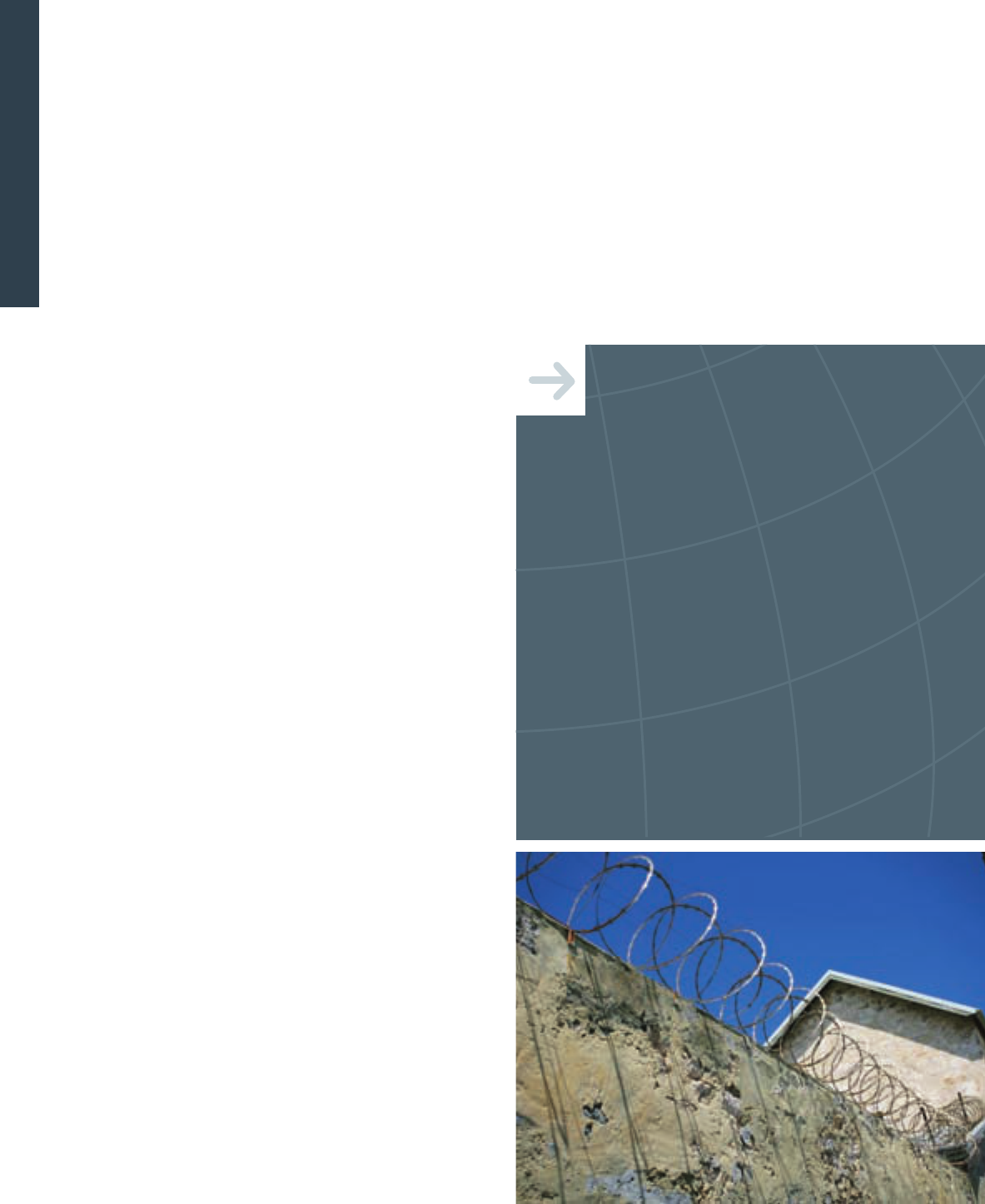
N
INTERPOL Notices serve to alert police to fugitives, suspected terrorists, dangerous criminals,
missing persons or weapon threats and are available to all member countries. In addition, a
diffusion is another type of alert that can be distributed directly from one National Central
Bureau (NCB) to some or all member countries, requesting the arrest or location of an
individual or additional police intelligence. The number of people arrested on the basis of a
Notice or diffusion since the year 2000 reached 31,765.
A number of notable arrests of individuals subject to an INTERPOL
Red Notice took place in 2009, including:
ρ EMMANUEL UWAYEZU, a Rwandan fugitive wanted for
charges connected to the 1994 genocide, arrested in Italy in
October.
ρ GEORGE ‘DIRK’ PRINSLOO, a South African national wanted
for sex crimes against children, arrested in Belarus in June,
following an attempted bank robbery.
ρ DENIS VASILYEV, a Russian wanted by NCB Moscow for
murder and illegal storage of firearms, detained in September
by the Ecuadorean Police and NCB Quito.
ρ MAS SELEMAT BIN KASTARI, an alleged leader of the Jemaah
Islamiyah terrorist group, wanted by Singapore, arrested in
Malaysia in May.
ρ SALVATORE MICELI, wanted for his role in the Sicilian mafia
and alleged drug trafficking and organized crime, arrested in
Venezuela in June.
S
Three dangerous convicted criminals escaped
from Bruges prison, Belgium, on 23 July, when
an accomplice hijacked a helicopter and forced
the pilot to land in the prison courtyard. Thanks
to rapid co-ordination between the Belgian
Federal Police, NCB Brussels and the General
Secretariat an Orange Notice security alert was
immediately sent around the world, followed by
Red Notices. By 9 August all three individuals
had been re-arrested: one in Belgium and two in
Morocco, followed two days later by the arrest
of one of the accomplices in Belgium.
ICPO_AnnualReport2009_EN_12.indd 32 09/06/10 17:51
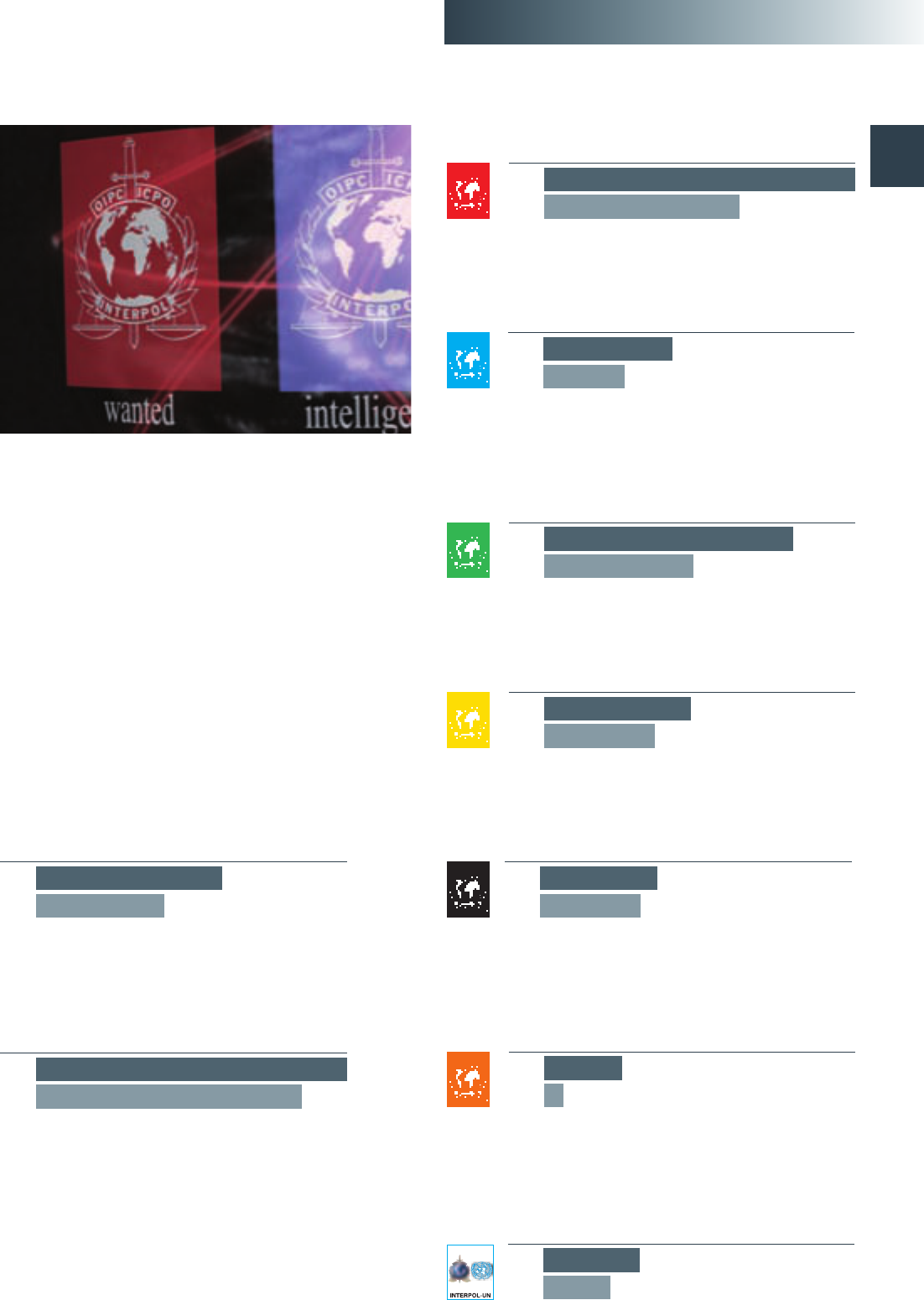
INTERPOL • ANNUAL REPORT 2009
33
3. TOOLS AND SERVICES FOR POLICE
5,020+61%2009
3,1262008
RED NOTICES ISSUED
Wanted persons
522+72%2009
3042008
BLUE NOTICES ISSUED
Individuals of interest in relation to a crime
1,139+72%2009
6642008
GREEN NOTICES ISSUED
Warnings and intelligence about serious criminals
22,851+27%2009
17,9352008
TOTAL NOTICES+ DIFFUSIONS ISSUED
74,873+15%2009
65,3582008
TOTAL VALID NOTICES AND DIFFUSIONS IN
CIRCULATION
103+13%2009
912008
BLACK NOTICES ISSUED
Unidentified bodies
472+23%2009
3852008
YELLOW NOTICES ISSUED
Missing persons
26+153%2009
172008
INTERPOL-UNITED NATIONS SECURITY COUNCIL
SPECIAL NOTICES ISSUED
Individuals associated with Al Qaeda and the Taliban, as
listed by the 1267 committee of the UN Security Council
I-link, our state-of-the-art database system, was launched in 2009
giving NCBs and authorized national institutions the ability to
directly access and record police information regarding wanted
persons subject to Red Notices. Via I-link, NCBs can now directly
issue Red Notices rather than requesting them through the General
Secretariat.
17
ORANGE NOTICES ISSUED
Dangerous materials, criminal acts or events that pose a
potential threat to public safety
+143%2009
72008
ICPO_AnnualReport2009_EN_12.indd 33 09/06/10 17:51

ICPO_AnnualReport2009_EN_12.indd 34 09/06/10 17:51
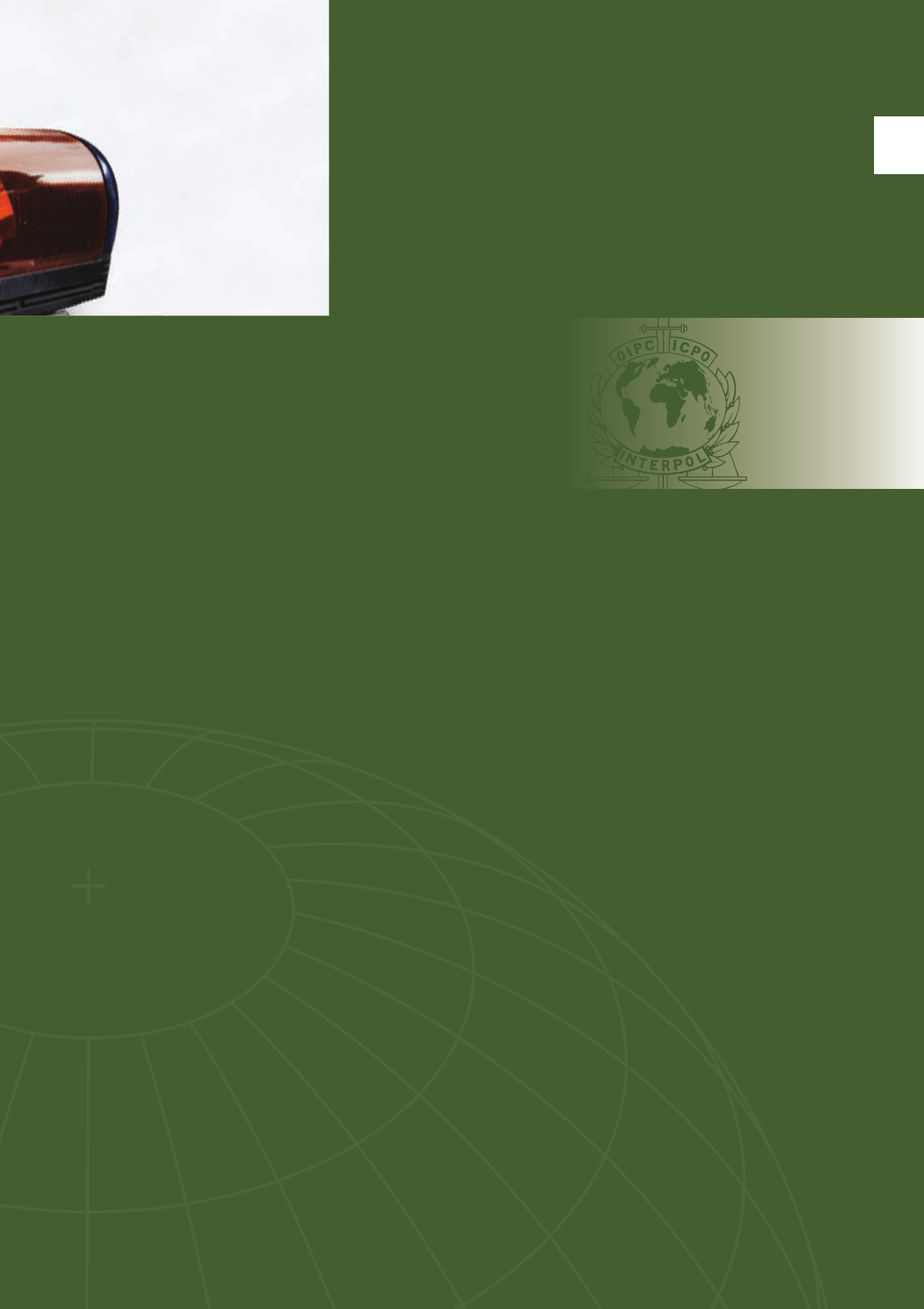
35
M
. W
-.
PRIORITY CRIME AREAS
4
ICPO_AnnualReport2009_EN_12.indd 35 09/06/10 17:51
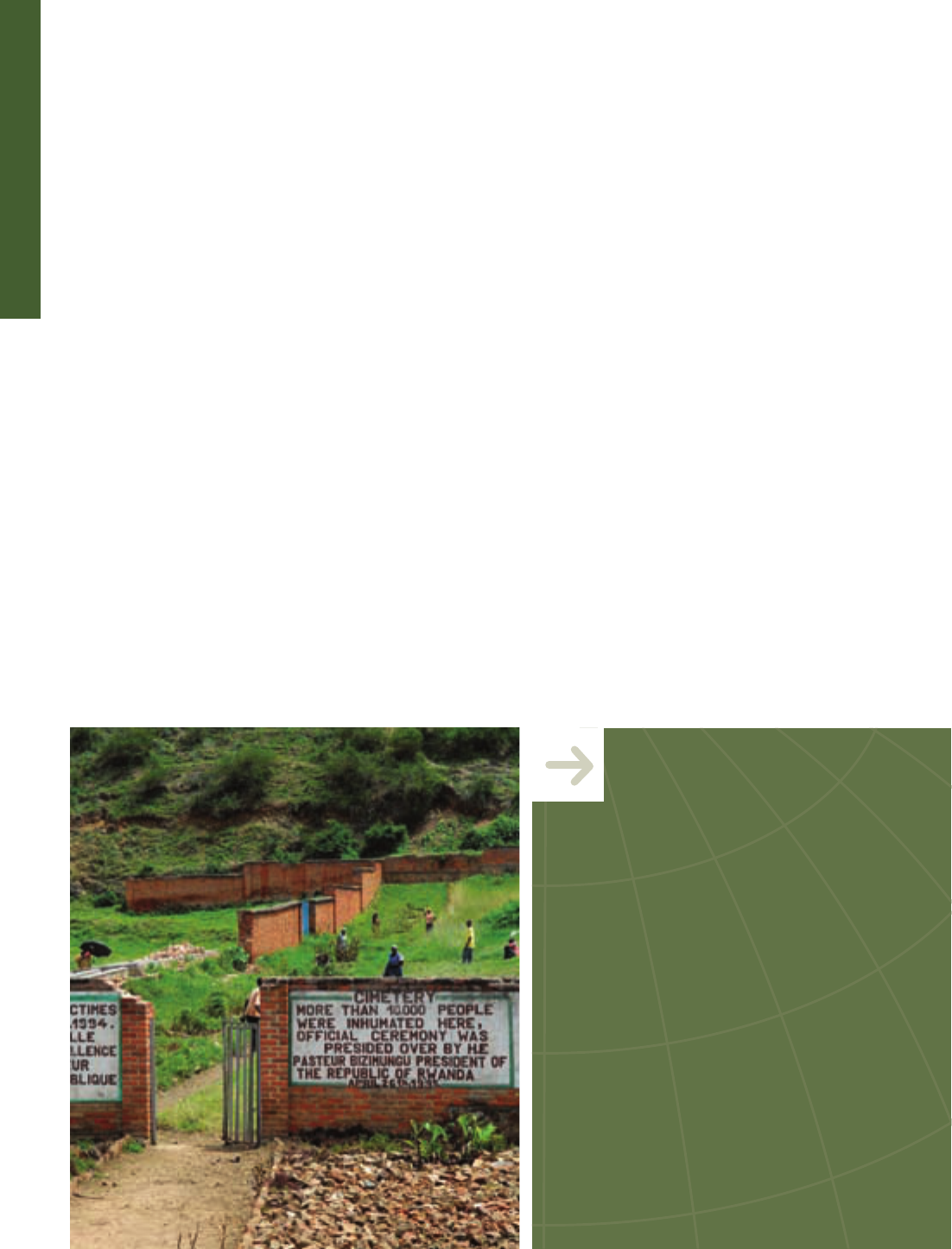
F
We continued to work closely with a number of international tribunals, national prosecuting
authorities and specialized units investigating war crime and crimes against humanity, to
provide investigative assistance in the location of fugitives.
assistiNg tribuNals For rWaNda aNd
the Former yugoslavia
Since 2007, we have assisted in a number of arrests worldwide in connection with the 1994
Rwandan genocide. By the end of 2009, 15 Rwandan suspects who were the subject of an
INTERPOL Red Notice (requested by either the International Criminal Tribunal for Rwanda or
INTERPOL’s NCB in Kigali) had been arrested, of which four arrests took place in 2009.
We also co-operate closely with the International Criminal Court and the International
Criminal Tribunal for the former Yugoslavia to locate and apprehend fugitives wanted for
crimes against humanity or war crimes, notably the two remaining fugitives of the Balkans
conflict, Ratko Mladic and Goran Hadzic.
A R
Ildephonse Nizeyimana, a high-profile
Rwandan fugitive was arrested by the
Ugandan authorities as part of a joint
operation in October with the International
Criminal Tribunal for Rwanda (ICTR), NCB
Kampala and the General Secretariat.
Nizeyimana was one of the top four fugitives
wanted by the ICTR, and is alleged to have
facilitated and approved the extermination
of Tutsis and moderate Hutus from April to
July 1994.
ICPO_AnnualReport2009_EN_12.indd 36 09/06/10 17:51
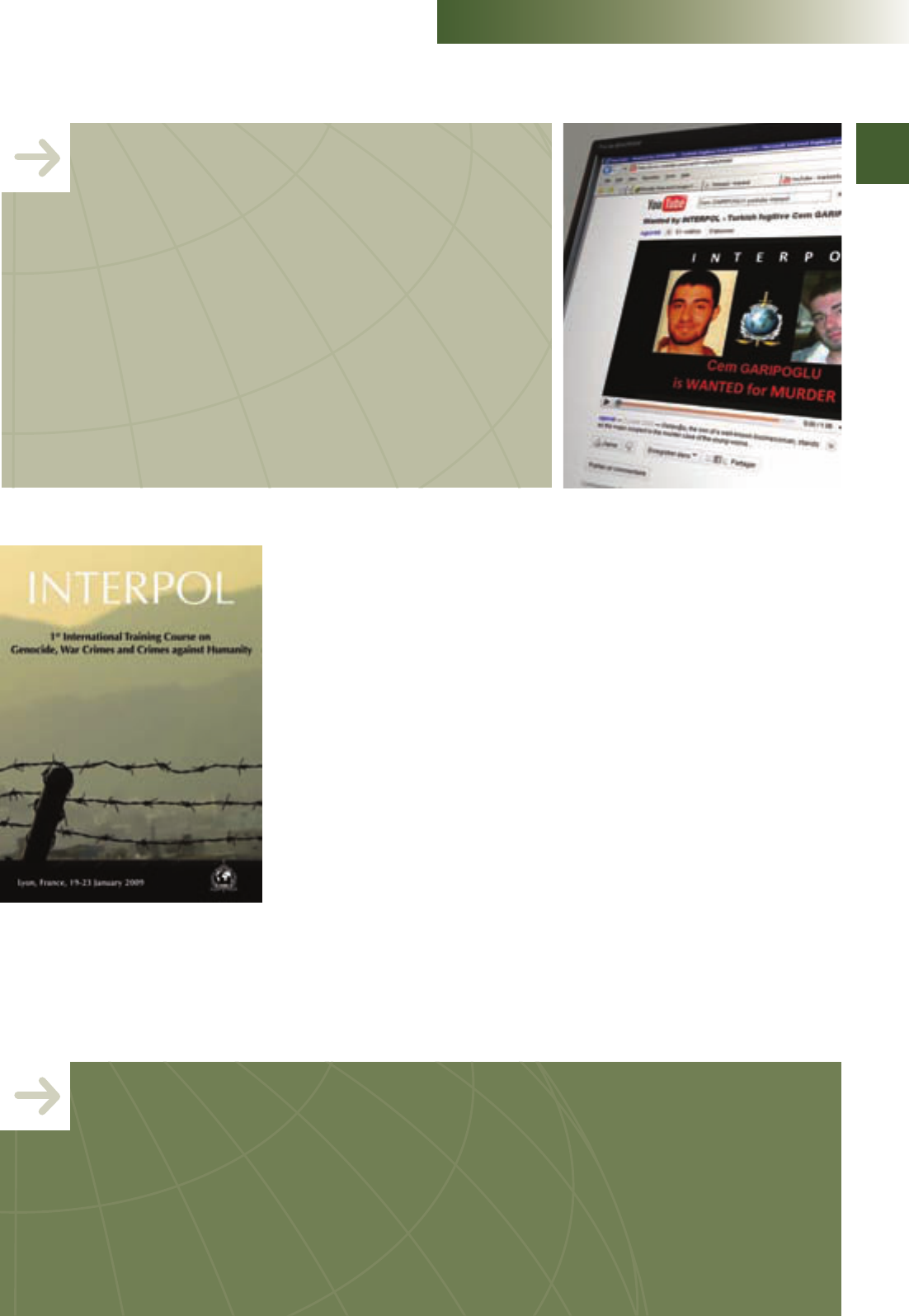
INTERPOL • ANNUAL REPORT 2009
4. PRIORITY CRIME AREAS
37
First traiNiNg For War
crimes iNvestigators
The first-ever training course for
investigators into war crimes and crimes
against humanity was held in January
2009. Clearly, this specialized area of
investigation requires specialized training,
and the course sought to increase co-
operation between the international
tribunals, INTERPOL and national law
enforcement agencies particularly with
reference to witness interviewing and
protection. The course also focused on the
investigation of sexual violence and the
forensic examination of crime scenes from
the perspective of international law. The
five-day course brought together 60 law
U
September saw the Istanbul Police, in close co-operation with NCB
Ankara, arrest Cem Garipoglu, who was wanted for the brutal
murder of his teenage girlfriend six months earlier. At the request of
NCB Ankara a Red Notice was issued for the suspect as well as Blue
Notices in order to locate and trace close relatives of the fugitive.
A video, to appeal to the public to give information, was also
produced in English, French, German, Turkish, Arabic and Russian
and posted on our website and YouTube, resulting in nearly 100
potential leads received from the public.
Seven member countries collaborated in Operation Infra-Red (International Fugitive Round-up and Arrest – Red
Notices), leading to the location or arrest of 45 wanted persons worldwide. The month-long operation in June saw
the active participation of Australia, Belgium, Canada, Colombia, Jamaica, the United Kingdom and the United
States. The fugitives were selected according to the severity of their offences, including murder, rape and drug
trafficking, and the operation focused on difficult cases where there was little information.
enforcement officers from 22 countries,
with 18 international speakers, field expert
investigators and representatives from the
United National tribunals, the International
Criminal Court, national prosecuting
authorities and non-governmental
organizations.
The development of global expertise in this
complex area was further addressed at our
Fourth International Expert Meeting on
genocide, war crimes and crimes against
humanity held in co-operation with the
Norwegian police in Oslo in May, attended
by more than 200 law enforcement and
judicial experts.
ICPO_AnnualReport2009_EN_12.indd 37 09/06/10 17:51
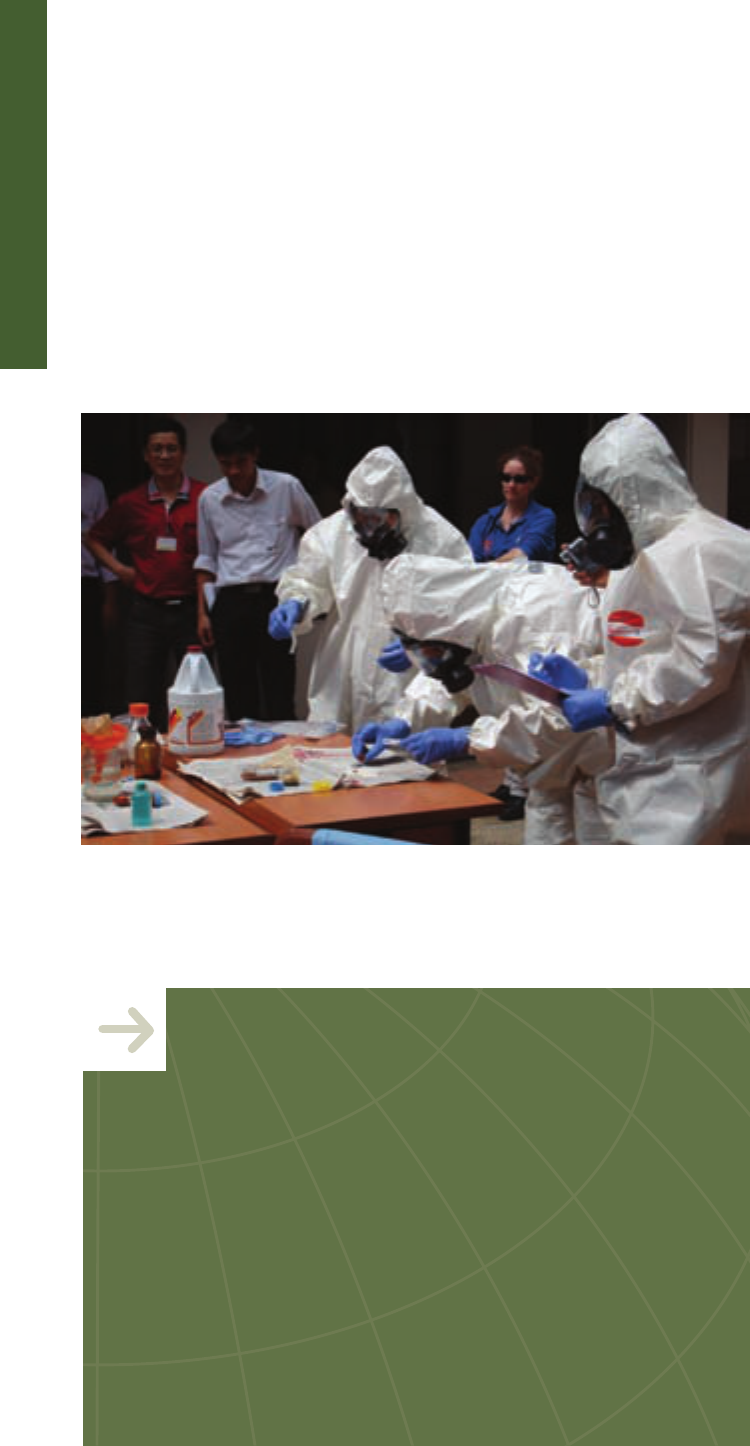
buildiNg a NetWork agaiNst terrorism
At the forefront of our counter-terrorism activities is the Fusion Task Force (FTF), made up
of six projects, each focusing on a specific geographical region. The FTF’s primary objectives
are to identify members of groups involved in international terrorist activity and to provide
a searchable database of wanted or suspected terrorists. At the end of 2009, 121 member
countries were contributing to the terrorism-related matters, with 218 designated contact
officers forming a global network of specialists in this area.
couNteriNg the
threats oF Nuclear aNd
biological terrorism
Project Geiger collates and analyses
information on illicit trafficking and other
unauthorized activities involving nuclear
and other radioactive materials. Cases in
the Project Geiger database reached a
total of more than 2,200, of which 133
took place in 2009, thereby providing an
invaluable resource for analysing patterns,
trends, potential risks, and trafficking routes
and methods.
Training initiatives are crucial in order
to prepare for cross-sector and cross-
border responses to the possibility of a
terrorist attack using biological agents
(such as bacteria, viruses or fungi). An
International Bioterrorism Tabletop Exercise
was held in Poland in September for
senior law enforcement officials, health
care professionals and experts from
international organizations. The exercise
simulated a global bioterrorism attack and
its aftermath, with the aim of identifying
roles and responsibilities in the event of a
real-life attack. A total of 27 participants
from six Central and Eastern European
countries took part.
P N
As part of Project Nexus (FTF Europe), two operational liaison
meetings were carried out in close co-operation with the Italian
authorities, focusing on terrorist arrests that had taken place in Bari,
Italy, in November 2008. The meetings brought together investigators
and intelligence officers from 12 countries in Europe, the Middle East,
North Africa and the Americas to assess links to terrorist arrests in
other countries, and led to the identification of a suspect linked to the
operation. Wanted by a European country for conspiracy to commit
armed robbery, abduction and rape, the individual was arrested for
these crimes in a country in the Middle East.
P
ICPO_AnnualReport2009_EN_12.indd 38 09/06/10 17:51
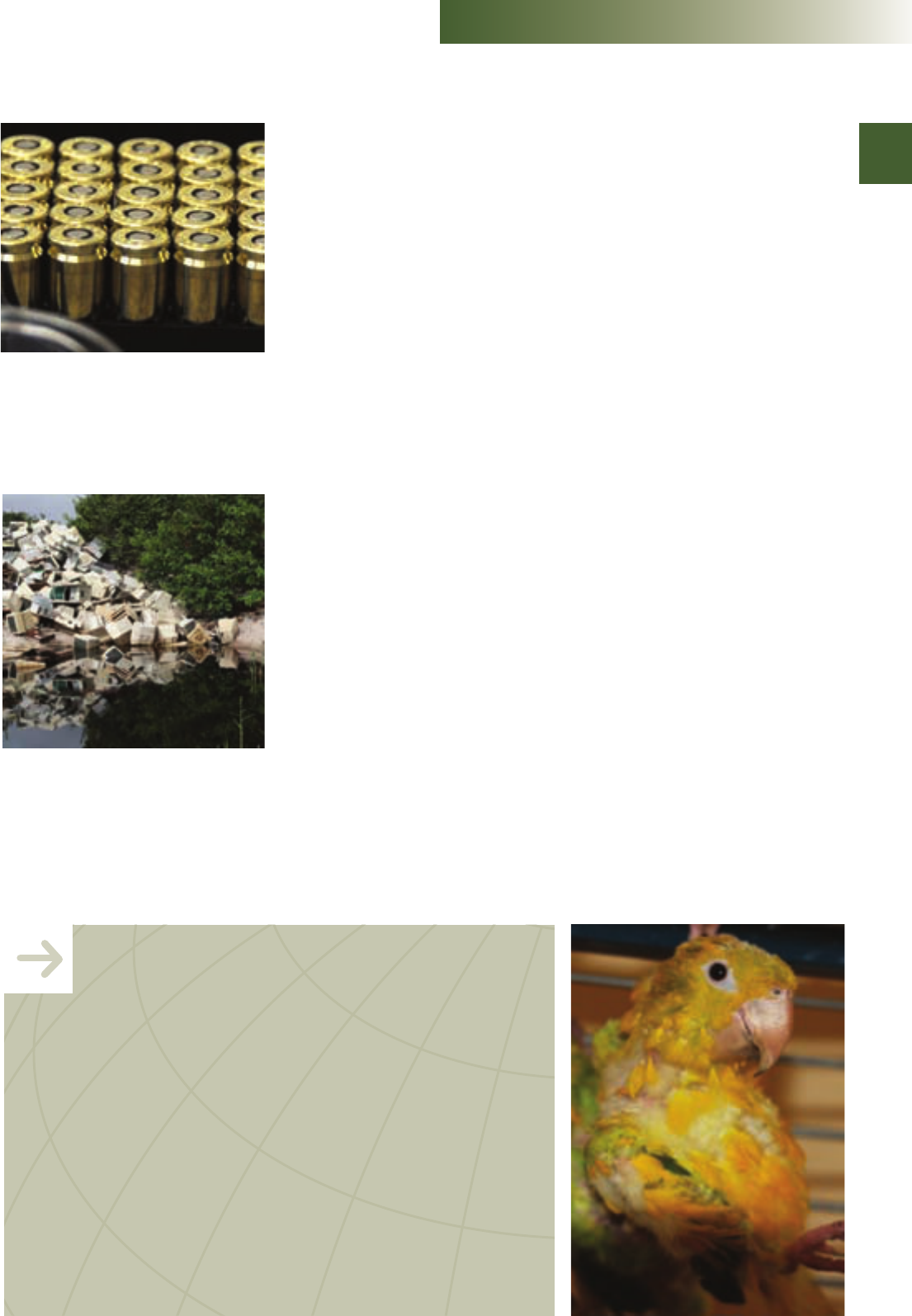
INTERPOL • ANNUAL REPORT 2009
39
4. PRIORITY CRIME AREAS
revealiNg the poteNtial oF ballistics data
The INTERPOL Ballistic Information Network (IBIN) was created in 2009, providing a
platform for the large-scale international sharing and comparing of ballistics data. Just
as fingerprint data can link crimes and criminals across international borders, IBIN can
identify matches between pairs of spent bullets and cartridge cases within minutes, thereby
helping forensic experts give police investigators timely information about crimes, guns and
suspects. The initiative got under way in February with the signing of a Memorandum of
Understanding with private company Forensic Technology. An IBIN Steering Committee was
set up, comprising laboratory and NCB representatives from six countries, followed by the
launch of a pilot network. By the end of 2009, IBIN contained in excess of 71,000 ballistic
records.
protectiNg the eNviroNmeNt From crime
We co-ordinated a number of successful operations into different crimes, such as the illegal
transportation of hazardous waste and the illegal ivory trade. Working group meetings
(the 21
st
Meeting of the INTERPOL Wildlife Crime Working Group and 15
th
Meeting of the
INTERPOL Pollution Crime Working Group), served to raise the profile of the programme,
with record attendance levels and participation of stakeholders from non-governmental
organizations and the private sector as well as the law enforcement community.
W
Operation Oxossi, Brazil’s largest-ever nationwide operation against
the illegal hunting and trade in wildlife, led to the issue of 102 arrest
warrants, 140 search warrants, six Red Notices and the seizure of more
than 3,500 wildlife specimens. Spanning nine Brazilian states and
involving 450 Federal Police Officers, an international dimension was
added as a Czech national – subject of one of the Red Notices – was
later arrested in Indonesia thanks to extensive collaboration between
NCBs in Brasilia, Jakarta and Prague.
ICPO_AnnualReport2009_EN_12.indd 39 09/06/10 17:51

D
restrictiNg the FloW oF drug traFFickiNg
Cocaine trafficking from South America to Europe via West Africa is a major criminal
phenomenon, affecting all of these regions either as source, transit or destination countries.
Project White Flow, established in March, facilitates international communication,
intelligence-sharing and collaboration by collecting data on traffickers (fingerprints, DNA,
photos, etc) and promoting joint investigations and operations against cocaine trafficking
rings linked to Africa.
addressiNg the groWiNg treNd oF maritime piracy
Due to the growing incidence of maritime piracy and armed robberies committed at
sea, we made a call at the G8 meeting in Rome in May for a common international
strategy, including a law enforcement approach to complement the military response.
Member countries reacted positively to this appeal, with Kenya and the Seychelles the
first countries to share with the global policing community vital data on suspected pirates.
These developments were followed by the first INTERPOL Working Group Meeting on
Maritime Piracy in the Horn of Africa, held in September, where discussions included the
investigation of financial transactions to establish links with other types of crime, such as
money laundering and terrorism.
stoleN Works oF art database goes oNliNe
Direct online access to our Stolen Works of Art database was made available in
August, enabling authorized users to check in real time if an item is among the
34,000 registered objects. The database represents an important tool to effectively
counter the traffic in cultural property and, by the end of the year, was being
accessed online by more than 1,100 users including law enforcement agencies,
governmental authorities and cultural and professional institutions – such as
ministries of culture, museums, auction houses and art galleries – from over 60
countries.
ICPO_AnnualReport2009_EN_12.indd 40 09/06/10 17:51

INTERPOL • ANNUAL REPORT 2009
41
4. PRIORITY CRIME AREAS
O C
A number of arrests in 2008 pointed clearly to
a new trend in drug trafficking from Africa to
Europe, with couriers hiding cocaine in food
cans. A working group meeting in January 2009
between the six countries concerned identified
two key suspects of Nigerian origin who were
already being investigated by the Belgian police.
Investigation and surveillance in Lagos led
to the arrest of one of the individuals – later
shown to be the leader of the cocaine network
– while a search of his home revealed evidence
including 5.5 kg of cocaine, USD 74,000 in
cash and a box of empty food cans of the same
type identified in previous arrests. The second
individual was arrested at Frankfurt airport,
Germany, thanks to an alert issued by the
Belgian police.
tackliNg orgaNiZed soccer gambliNg
In December, we pledged to help the world football body FIFA
create an international task force against illegal gambling in
football. Organized crime groups often control illegal gambling
dens and are willing to corrupt players and officials as well as use
force and threats to collect unpaid debts.
maNuFacturers JoiN police to detect
stoleN cars
Project INVEX works in co-operation with car manufacturers to
find new ways of detecting stolen motor vehicles and to increase
the quality of the data collected. Initiated by the NCB in Germany,
by the end of the year the project involved five countries and
car manufacturers Volkswagen (including Skoda and Seat), Audi
(including Lamborghini) and Porsche. Following a resolution passed
at the General Assembly in October, the pilot project was formally
adopted and is being extended to further member countries.
G
Three suspects were arrested following the theft
in October of gold bullion worth USD 2 million
in the United Arab Emirates. The swift response
of NCB Doha (Qatar) meant that the suspects
– who were travelling on Qatar Airways – were
identified as soon as they landed in Hong Kong
and sent back immediately to Abu Dhabi where
they were arrested. It was revealed that the gold
had been sent to the United States, and the
ensuing exchange of information between the
NCBs concerned led to the recovery of part of
the haul in New York, exactly one week after the
robbery.
ICPO_AnnualReport2009_EN_12.indd 41 09/06/10 17:51

F -
settiNg staNdards iN e-crime iNvestigatioNs
Working with University College Dublin, we have launched a specialist training initiative
that will help establish a recognized international standard for digital forensics and
cybercrime investigations. The agreement signed in April will see law enforcement officers
from around the world benefit from training in a range of areas including preserving
electronic evidence, enhancing investigation techniques for online crime, capturing evidence
of covert activity and managing intelligence-led operations.
T
National medicines regulators,
police and customs worked
together on Operation Pangea II, a
global operation highlighting the
dangers of buying medicines online.
Activities targeted the three principal
components used by illegal websites
to conduct their trade – the Internet
Service Provider (ISP), payment systems
and the delivery service. This year,
25 countries devoted an entire week
to the operation, compared to eight
countries and a single day of action
in 2008. Internet monitoring revealed
more than 1,400 websites engaged
in illegal activity, of which more than
150 were taken down. Pangea was
co-ordinated with IMPACT, the World
Health Organization’s International
Medical Products Anti-Counterfeiting
Taskforce.
microsoFt ForeNsic tool adopted
In line with our growing partnership with the IT sector, we signed an agreement with
Microsoft Corp. in April at the first international public safety symposium. Under this
agreement, Microsoft will make available to all INTERPOL member countries its Computer
Online Forensic Evidence Extractor (COFEE) software tool to help law enforcement
investigators access live computer system data without compromising its evidentiary value.
ICPO_AnnualReport2009_EN_12.indd 42 09/06/10 17:51

INTERPOL • ANNUAL REPORT 2009
43
4. PRIORITY CRIME AREAS
takiNg the couNterFeitiNg Fight to the
top level
A gathering of top government officials, business leaders
and senior law enforcement authorities urged national and
international political and business leaders to step up actions
against counterfeiting and piracy to help boost global economic
recovery. The Fifth Global Congress on Combating Counterfeiting
and Piracy, held in Cancun, Mexico from 1-3 December, brought
together more than 800 delegates from 80 countries to share
proposals for disrupting and curbing the worldwide illicit trade
in counterfeit and pirated goods, identify more innovative and
effective solutions and build upon successful strategies already
in place.
The 2009 International Law Enforcement Intellectual Property (IP)
Crime Conference was the first of its kind in Europe featuring a
series of key workshops and gathering more than 390 specialist IP
crime investigators, prosecutors and experts drawn from both the
public and private sectors in 44 countries. The three-day event, held
in Dublin, was co-hosted by INTERPOL, Ireland’s An Garda Síochána
police force and the Police Service of Northern Ireland, in partnership
with Underwriters Laboratories.
-
We supported Atlas, the first worldwide
joint customs operation targeting the bulk
smuggling of cash across borders. Led by the
World Customs Organization (WCO) and the
US Immigration and Customs Enforcement
(ICE), the operation resulted in the seizure of
approximately USD 3.5 million, with active
participation from 70 countries. As well as
giving access to our databases, we sent an
INTERPOL Major Events Support Team to the
WCO to assist the five-day operational phase
in October and ensure a 24-hour response to
this global activity.
ICPO_AnnualReport2009_EN_12.indd 43 09/06/10 17:51
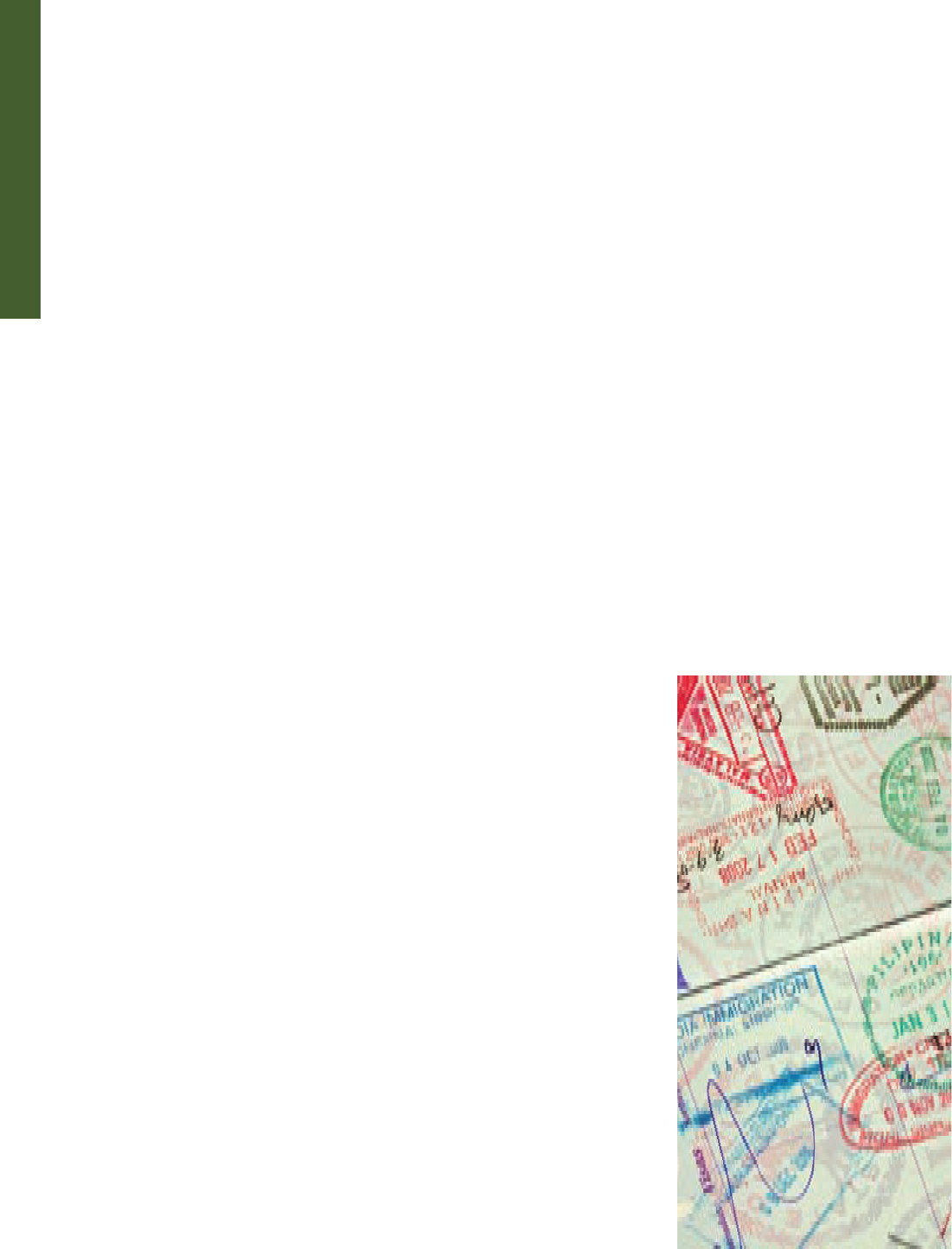
T
helpiNg to rescue abused childreN
To help dedicated child exploitation investigators to analyse and share data with colleagues
in other countries, we manage the International Child Sexual Exploitation image database
(ICSE DB), launched in March. Available to certified investigators via our secure I-24/7
network, the database uses image recognition software to connect victims and places.
ICSE replaced the INTERPOL Child Abuse Image Database (ICAID), which served
investigators at the General Secretariat for eight years. Previously, only designated staff at
the General Secretariat had access to the database whereas more than 50 authorized users
in 12 countries are now connected with direct access and the total number of identified
victims identified reached nearly 1,500.
We continued to work closely with our partners in the Virtual Global Taskforce (VGT) in
2009. Among the global activities of the VGT during the year were the dismantling of
global paedophile networks, the co-ordination of covert Internet investigations, the sharing
and developing of intelligence and the targeting of travelling sex offenders. Collaboration
between VGT partners has led to more than 1,000 arrests and dozens of children
safeguarded internationally.
dismaNtliNg NetWorks oF
people smugglers
Our Dismantling Smuggling Networks
(DSN) project works to detect organized
crime networks involved in people
smuggling and identify methods to more
effectively investigate and combat the
crime. The project’s first meeting, held
in February, was organized in response
to an increase in the number of people
smuggling cases being identified through
hits reported by member countries
conducting checks against our Stolen and
Lost Travel Documents (SLTD) database.
Specialists shared information on the
criminal networks behind this crime and
existing and emerging smuggling routes.
WorkiNg With
FroNteX agaiNst
illegal immigratioN
A Working Arrangement, signed in May
2009, forms the basis for formal co-
operation with FRONTEX with the aim
of combating illegal immigration, people
smuggling and trafficking in human
beings. An exploratory meeting to Vienna
International Airport in September laid
out provisions for the installation of our
MIND/FIND technology to enable FRONTEX
officers and local border control personnel
to check passengers’ passports against
the INTERPOL database of stolen and
lost travel documents. Further planning
meetings in 2009 and into 2010 will
ensure joint operational activity between
the two organizations on a Europe-wide
basis in the near future.
ICPO_AnnualReport2009_EN_12.indd 44 09/06/10 17:51
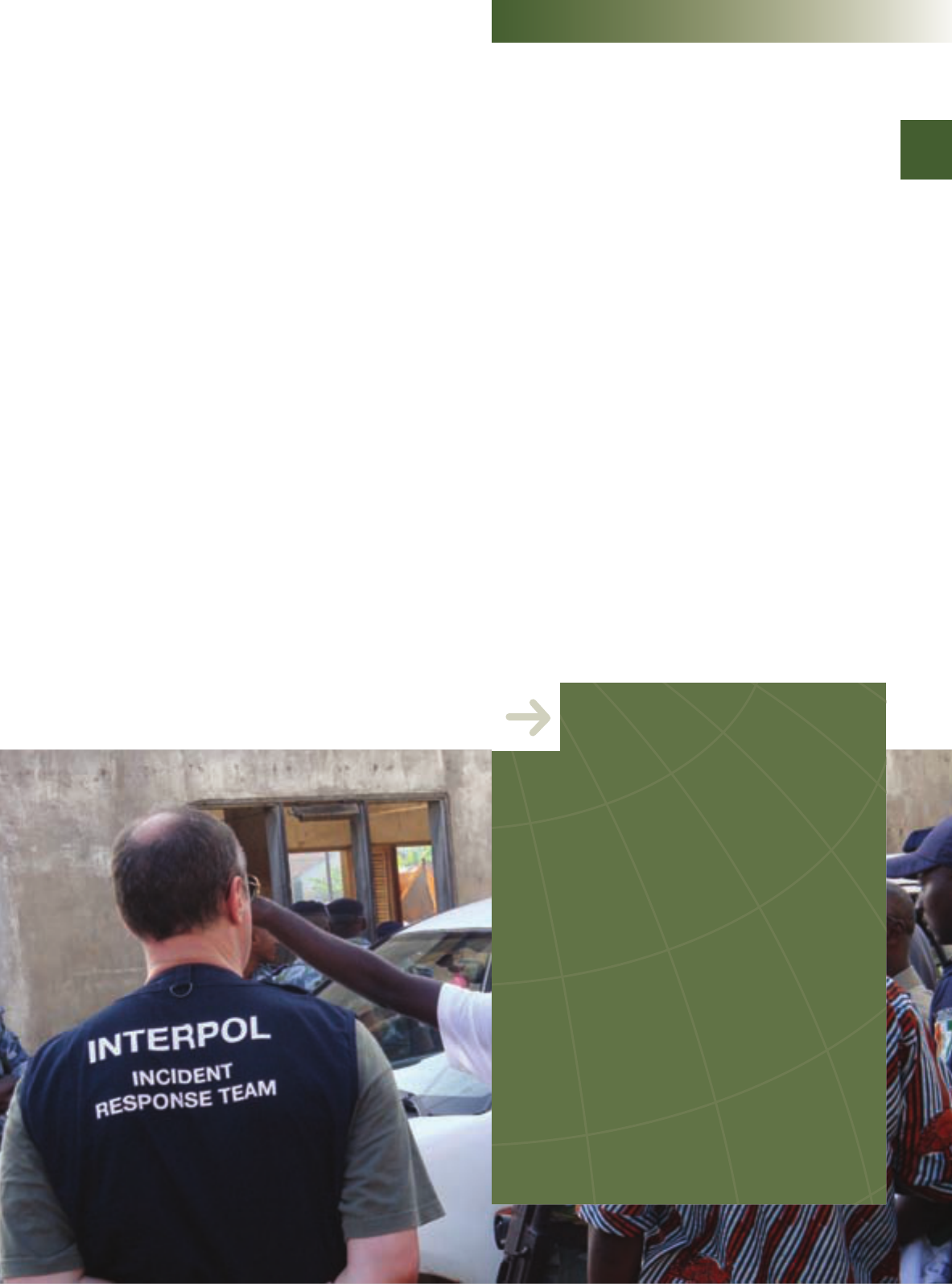
INTERPOL • ANNUAL REPORT 2009
45
4. PRIORITY CRIME AREAS
A-
shariNg kNoWledge
oN aNti-corruptioN
techNiques
A resolution was adopted at October’s
General Assembly for the development
of an information exchange platform
for national anti-corruption entities
and of a technical and strategic anti-
corruption knowledge database, known
as UMBRA. This concept aims to promote
and increase the exchange and flow of
corruption information and anti-corruption
methodologies and technical knowledge.
recoveriNg aNd
returNiNg stoleN assets
In partnership with the StAR Initiative,
we launched a Focal Point database in
January to strengthen the co-ordination
of law enforcement bodies in their role of
effectively investigating and prosecuting
individuals and organizations involved in
the illegal looting of public resources. The
24-hour, seven-day a week StAR Focal
Point Contact List identifies officials in
countries who can respond to emergency
requests for assistance. By the end of 2009
some 70 countries were taking part.
secure surveillaNce
techNiques
In 2009 we carried out assessments of a
highly secure Internet-based surveillance
support system that will assist member
countries in monitoring corrupt practices
and collecting and recording high-level
admissible evidence. The system enables
the transfer of video and audio files from
field locations and can be viewed and
recorded for evidence anywhere in the
world via a virtual private network (VPN).
This cost-effective product is rapidly
deployable and will help our member
countries identify and dismantle corrupt
activities in a variety of locations, such as at
border points.
S
An evaluation mission examined the murder of
an anti-corruption champion in Burundi who
had been involved in investigating government
corruption, and assisted Burundi to arrest and
extradite one of the suspects. Significant gaps
in forensic measures were identified along
with areas that required technical support and
capacity building.
At the request of the President of Cameroon,
we deployed a team to assist investigators
in the identification and repatriation of large
scale stolen assets in foreign jurisdictions – the
first step in establishing an international asset
recovery response capability.
ICPO_AnnualReport2009_EN_12.indd 45 09/06/10 17:51

ICPO_AnnualReport2009_EN_12.indd 46 09/06/10 17:51

47
T
O
,
.
FINANCES
5
ICPO_AnnualReport2009_EN_12.indd 47 09/06/10 17:51

F S
For the financial year 2009, INTERPOL’s operating income totalled EUR 59 million, of which
83% was contributed by member countries, mostly in the form of statutory contributions
(82%). Income received on externally-funded projects or from private foundations and/or
commercial enterprises with similar objectives or interests to ours constituted 14% of gross
income. Other income and reimbursements made up 3% of the total.
Total ordinary operating expenditures
were EUR 59 million globally, with pay
constituting the major cost component
at 56% of the total, followed by travel
and conference costs (14%), third-party
and other costs (7%), maintenance
expenditures (4%), and premises running
costs, office expenses, other staff costs,
and telecommunications costs associated
with our I-24/7 global telecommunications
system (3% each). Depreciation
expenditure constituted 7% of the total.
Our financial performance saw a small
deficit during 2009, which was adjusted
against the Accumulated Reserve Funds.
The purchase of fixed assets consumed
EUR 3.9 million of financial resources. Cash
and cash equivalents decreased marginally,
due mainly to the financial deficit, reduced
advance receipts on the 2010 budget, and
a decrease in project incomes received
in advance; countered by increases in
employee-related liabilities and in payables,
and a decline in prepaid expenses and
other receivables. Financial equity and
reserves – represented by various funds
– decreased by EUR 122,000 over the
previous year due to the operational deficit
in 2009.
The financial tables which appear on the
following pages – statements of financial
position, financial performance, changes
in equity, and cash flows – are externally
audited and summarize the financial status
and performance of the Organization in
2009 and 2008. These financial statements
are prepared, where possible, in compliance
with the International Public Sector
Accounting Standards (IPSAS). Where IPSAS
does not have a specific standard, the
International Accounting Standards have
been used.
These financial statements have been
prepared on a going concern basis,
conforming to the historical cost
convention using the accrual method of
accounting. All transactions comply with
INTERPOL’s financial regulations.
ICPO_AnnualReport2009_EN_12.indd 48 09/06/10 17:51

INTERPOL • ANNUAL REPORT 2009
49
5. FINANCES
F S
( E) D D
assets
CURRENT ASSETS
Cash and cash equivalents 32,561 32,795
Other accounts receivables and prepayments 4,078 4,796
Statutory contributions receivable 2,468 2,524
Inventories 660 558
TOTAL CURRENT ASSETS 39,767 40,673
NON-CURRENT ASSETS
Non-current statutory contributions receivable 578 473
Net fixed assets 22,243 22,731
TOTAL NON-CURRENT ASSETS 22,821 23,204
TOTAL ASSETS 62,588 63,877
liabilities
CURRENT LIABILITIES
Payables (5,003) (4,179)
Employee-related liabilities (2,396) (2,257)
Income received in advance (806) (3,444)
Deferred project income (3,096) (4,307)
TOTAL CURRENT LIABILITIES (11,301) (14,187)
NON-CURRENT LIABILITIES
Employee-related liabilities (5,352) (3,633)
TOTAL NON-CURRENT LIABILITIES (5,352) (3,633)
TOTAL LIABILITIES (16,653) (17,820)
TOTAL NET ASSETS 45,935 46,057
equity
Capital financing reserve 22,243 22,731
Accumulated reserve funds 23,692 23,326
TOTAL EQUITY 45,935 46,057
statemeNt oF FiNaNcial positioN as at:
ICPO_AnnualReport2009_EN_12.indd 49 09/06/10 17:51

( E) D D
OPERATING REVENUE
Statutory contributions 47,440 45,128
Regional Bureau financing 815 797
Voluntary contributions 585 721
Reimbursements and recoveries 1,058 945
Financial income 251 1,517
Other income 8,540 7,868
Exchange rate gains/(losses) net 4 (49)
TOTAL OPERATING REVENUE 58,693 56,927
OPERATING EXPENSES
Pay costs 33,126 31,262
Other staff costs 1,167 1,078
Premises running costs 1,875 1,845
Maintenance 2,436 1,902
Missions and meetings 8,440 7,365
Office expenses 1,532 1,766
Telecommunication costs 1,576 1,302
Third party and other costs 4,308 4,063
Depreciation expenditure 4,355 4,530
TOTAL OPERATING EXPENSES (58,815) (55,113)
SURPLUS/(DEFICIT) FOR THE YEAR (122) 1,814
( E)
C
A
T
BALANCE AT 31 DECEMBER 2008,
AS PREVIOUSLY REPORTED 23,223 23,195 46,418
Prior year adjustments (492) 131 (361)
RESTATED BALANCE AT 31 DECEMBER 2008 22,731 23,326 46,057
Net gains and losses not recognized in
statement of financial performance, being capital
expenditures (net) funded out of accumulated reserve funds (488) 488
Net (deficit) / surplus for the year (122) (122)
BALANCE AT 31 DECEMBER 2009 22,243 23,692 45,935
statemeNt oF FiNaNcial perFormaNce For the FiNaNcial year eNded oN:
s
tatemeNt oF chaNges iN equity For the FiNaNcial year eNded oN 31 december 2009:
ICPO_AnnualReport2009_EN_12.indd 50 09/06/10 17:51

INTERPOL • ANNUAL REPORT 2009
51
5. FINANCES
( E) D D
CASH FLOWS FROM OPERATING ACTIVITIES
Surplus / (deficit) from ordinary operating activities (122) 1,814
NON-CASH MOVEMENTS
Depreciation expenditure 4,355 4,530
Adjustment for financial income (reported separately) (251) (1,517)
Adjustment for (gain)/ loss on sale of assets 1 124
Adjustment for leave provision of employees 244 30
Adjustment for provision under ICSILE (217) 66
Increase / (Decrease) in payables 824 376
Increase / (Decrease) in income received in advance (2,638) 2,736
Increase / (Decrease) in deferred project income (1,211) (891)
Increase / (Decrease) in employee-related liabilities non-current 1,815 1,466
Increase / (Decrease) in employee-related liabilities current 16 46
(Increase) / Decrease in inventories (102) (1)
(Increase) / Decrease in statutory
contributions receivable non-current (105) 71
(Increase) / Decrease in other accounts receivables &
prepayments current 718 (2,258)
(Increase) / Decrease in statutory
contributions receivable current 56 (375)
NET CASH FLOWS FROM OPERATING ACTIVITIES 3,383 6,217
CASH FLOWS FROM INVESTING ACTIVITIES
Purchases of fixed assets (3,868) (3,943)
Sales of fixed assets 18
NET CASH FLOWS FROM INVESTING ACTIVITIES (3,868) (3,925)
CASH FLOWS FROM FINANCING ACTIVITIES
Financial interest income received 251 1,517
NET CASH FLOWS FROM FINANCING ACTIVITIES 251 1,517
NET INCREASE/(DECREASE) IN CASH
AND CASH EQUIVALENTS (234) 3,809
Cash and cash equivalents at the beginning of period 32,795 28,986
Cash and cash equivalents at the end of period 32,561 32,795
MOVEMENT IN CASH AND CASH EQUIVALENTS (234) 3,809
statemeNt oF cash FloWs For the FiNaNcial year eNded oN:
ICPO_AnnualReport2009_EN_12.indd 51 09/06/10 17:51

ρ Afghanistan, Kabul
ρ Albania, Tirana
ρ Algeria, Algiers
ρ Andorra, Andorra la Vella
ρ Angola, Luanda
ρ Antigua and Barbuda, St John’s
ρ Argentina, Buenos Aires
ρ Armenia, Yerevan
ρ Aruba, Oranjestad
ρ Australia, Canberra
ρ Austria, Vienna
ρ Azerbaijan, Baku
ρ Bahamas, Nassau
ρ Bahrain, Adaliya
ρ Bangladesh, Dhaka
ρ Barbados, Bridgetown
ρ Belarus, Minsk
ρ Belgium, Brussels
ρ Belize, Belmopan
ρ Benin, Cotonou
ρ Bhutan, Thimphu
ρ Bolivia, La Paz
ρ Bosnia and Herzegovina, Sarajevo
ρ Botswana, Gaborone
ρ Brazil, Brasilia
ρ Brunei, Negara Brunei Darussalam
ρ Bulgaria, Sofia
ρ Burkina Faso, Ouagadougou
ρ Burundi, Bujumbura
ρ Cambodia, Phnom Penh
ρ Cameroon, Yaoundé
ρ Canada, Ottawa
ρ Cape Verde, Praïa
ρ Central African Republic, Bangui
ρ Chad, N’Djamena
ρ Chile, Santiago
ρ China, Beijing
ρ Colombia, Bogotá
ρ Comoros, Moroni
ρ Congo, Brazzaville
ρ Congo (Democratic Rep.),
Kinshasa
ρ Costa Rica, San José
ρ Côte d’Ivoire, Abidjan
ρ Croatia, Zagreb
ρ Cuba, Havana
ρ Cyprus, Nicosia
ρ Czech Republic, Prague
M C
INTERPOL: N C B
M C
ρ Denmark, Copenhagen
ρ Djibouti, Djibouti
ρ Dominica, Roseau
ρ Dominican Republic, Santo
Domingo
ρ Ecuador, Quito
ρ Egypt, Cairo
ρ El Salvador, San Salvador
ρ Equatorial Guinea, Malabo
ρ Eritrea, Asmara
ρ Estonia, Tallinn
ρ Ethiopia, Addis Ababa
ρ Fiji, Suva
ρ Finland, Helsinki
ρ Former Yugoslav Republic of
Macedonia, Skopje
ρ France, Paris
ρ Gabon, Libreville
ρ Gambia, Banjul
ρ Georgia, Tbilisi
ρ Germany, Wiesbaden
ρ Ghana, Accra
ρ Greece, Athens
ρ Grenada, St George’s
ρ Guatemala, Guatemala
ρ Guinea, Conakry
ρ Guinea Bissau, Bissau
ρ Guyana, Georgetown
ρ Haiti, Port au Prince
ρ Honduras, Tegucigalpa
ρ Hungary, Budapest
ρ Iceland, Reykjavik
ρ India, New Delhi
ρ Indonesia, Jakarta
ρ Iran, Tehran
ρ Iraq, Baghdad
ρ Ireland, Dublin
ρ Israel, Jerusalem
ρ Italy, Rome
ρ Jamaica, Kingston
ρ Japan, Tokyo
ρ Jordan, Amman
ρ Kazakhstan, Astana
ρ Kenya, Nairobi
ρ Korea (Rep. of), Seoul
ρ Kuwait, Dahiyat Abdullah Al-Salem
ρ Kyrgyzstan, Bishkek
ρ Laos, Vientiane
ρ Latvia, Riga
ρ Lebanon, Beirut
ρ Lesotho, Maseru
ρ Liberia, Monrovia
ρ Libya, Tripoli
ρ Liechtenstein, Vaduz
ρ Lithuania, Vilnius
ρ Luxembourg, Luxembourg
ρ Madagascar, Antananarivo
ρ Malawi, Lilongwe
ρ Malaysia, Kuala Lumpur
ρ Maldives, Male
ρ Mali, Bamako
ρ Malta, Floriana
ρ Marshall Islands, Majuro
ρ Mauritania, Nouakchott
ρ Mauritius, Port Louis
ρ Mexico, Mexico City
ρ Moldova, Chisinau
ρ Monaco, Monaco
ρ Mongolia, Ulaanbaatar
ρ Montenegro, Podgorica
ρ Morocco, Rabat
ρ Mozambique, Maputo
ρ Myanmar, Yangon
ρ Namibia, Windhoëk
ρ Nauru, Yaren
ρ Nepal, Kathmandu
ρ Netherlands, The Hague
ρ Netherlands Antilles, Willemstad
ρ New Zealand, Wellington
ρ Nicaragua, Managua
ρ Niger, Niamey
ρ Nigeria, Lagos
ρ Norway, Oslo
ρ Oman, Muscat
ρ Pakistan, Islamabad
ρ Panama, Panama City
ρ Papua New Guinea, Konedobu
ρ Paraguay, Asuncion
ρ Peru, Lima
ρ Philippines, Manila
ρ Poland, Warsaw
ρ Portugal, Lisbon
ρ Qatar, Doha
ρ Romania, Bucharest
ρ Russia, Moscow
ρ Rwanda, Kigali
ρ St Kitts and Nevis, Basseterre
ρ St Lucia, Castries
ρ St Vincent and the Grenadines,
Kingstown
ρ Samoa, Apia
ρ San Marino, San Marino
ρ Sao Tome and Principe, Sao Tome
ρ Saudi Arabia, Riyadh
ρ Senegal, Dakar
ρ Serbia, Belgrade
ρ Seychelles, Victoria (Mahé)
ρ Sierra Leone, Freetown
ρ Singapore, Singapore
ρ Slovakia, Bratislava
ρ Slovenia, Ljubljana
ρ Somalia, Mogadishu
ρ South Africa, Pretoria
ρ Spain, Madrid
ρ Sri Lanka, Colombo
ρ Sudan, Khartoum
ρ Suriname, Paramaribo
ρ Swaziland, Mbabane
ρ Sweden, Stockholm
ρ Switzerland, Berne
ρ Syria, Damascus
ρ Tajikistan, Dushanbe
ρ Tanzania, Dar es Salaam
ρ Thailand, Bangkok
ρ Timor-Leste, Dili
ρ Togo, Lomé
ρ Tonga, Nuku’alofa
ρ Trinidad and Tobago, Port of Spain
ρ Tunisia, Tunis
ρ Turkey, Ankara
ρ Turkmenistan, Ashgabat
ρ Uganda, Kampala
ρ Ukraine, Kiev
ρ United Arab Emirates, Abu Dhabi
ρ United Kingdom, London
ρ United States of America,
Washington DC
ρ Uruguay, Montevideo
ρ Uzbekistan, Tashkent
ρ Vatican City State, Vatican City
ρ Venezuela, Caracas
ρ Vietnam, Hanoi
ρ Yemen, Sana’a
ρ Zambia, Lusaka
ρ Zimbabwe, Harare
ICPO_AnnualReport2009_EN_12.indd 52 09/06/10 17:51
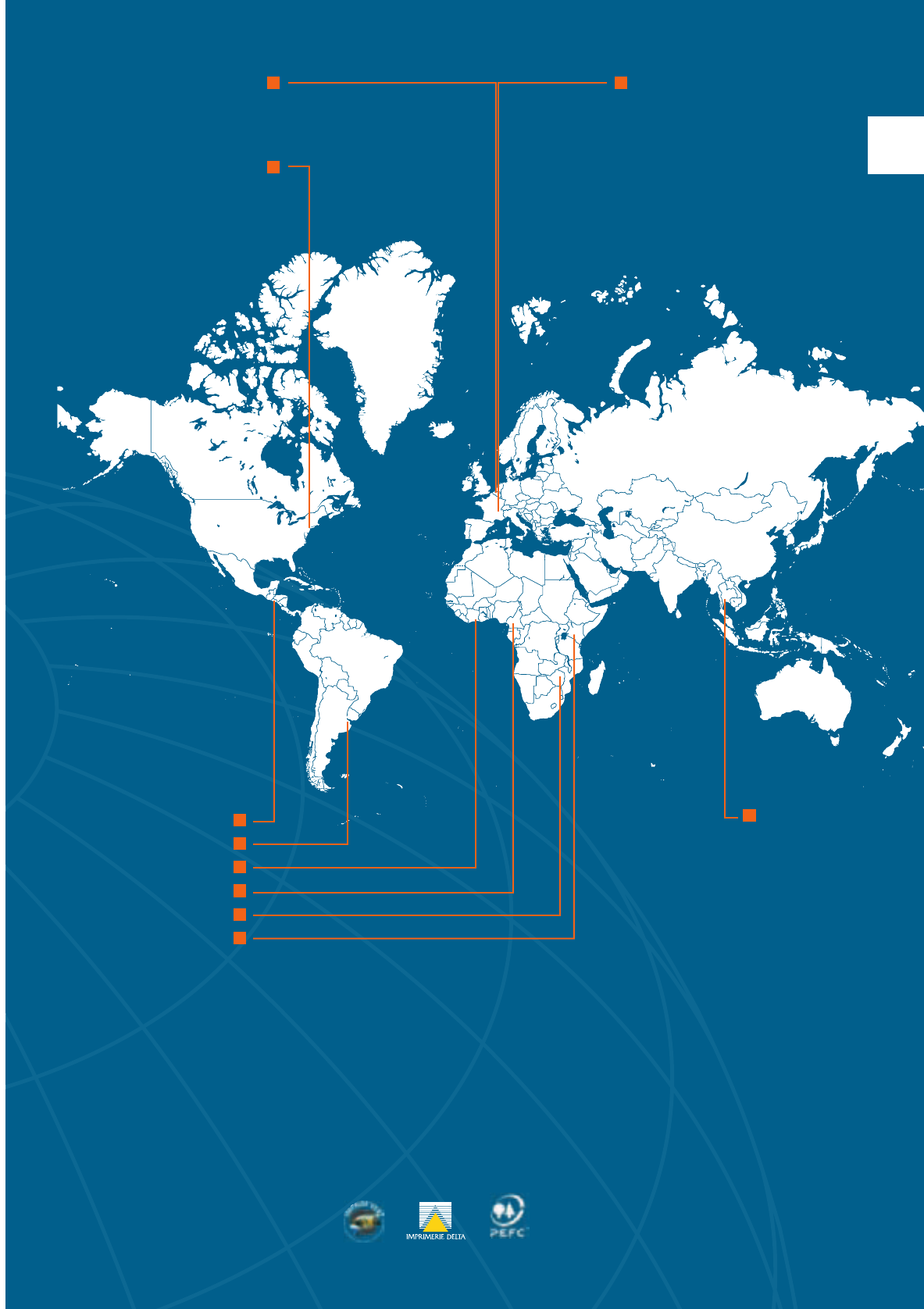
53
PEFC/10-31-1409
188
MEMBER COUNTRIES
2009:
INTERPOL GENERAL SECRETARIAT
200, quai Charles de Gaulle
69006 Lyon
France
Tel: +33 (0) 4 72 44 70 00
Fax: +33 (0) 4 72 44 71 63
E-mail: [email protected]
Liaison Office:
Bangkok, Thailand
Office of the Special Representative
of INTERPOL at the United Nations
in New York, United States of America
Office of the Special Representative
of INTERPOL at the European Union in
Brussels, Belgium
Regional Bureaus:
San Salvador, El Salvador
Buenos Aires, Argentina
Abidjan, Côte d’Ivoire
Yaoundé, Cameroon
Harare, Zimbabwe
Nairobi, Kenya
Copyright INTERPOL 2010
Photo credits: INTERPOL, Istockphoto, Andia.
Printed on paper obtained from sustainably managed forests.
ICPO_AnnualReport2009_Cover_Multilingual_01.indd 1 09/06/10 14:42
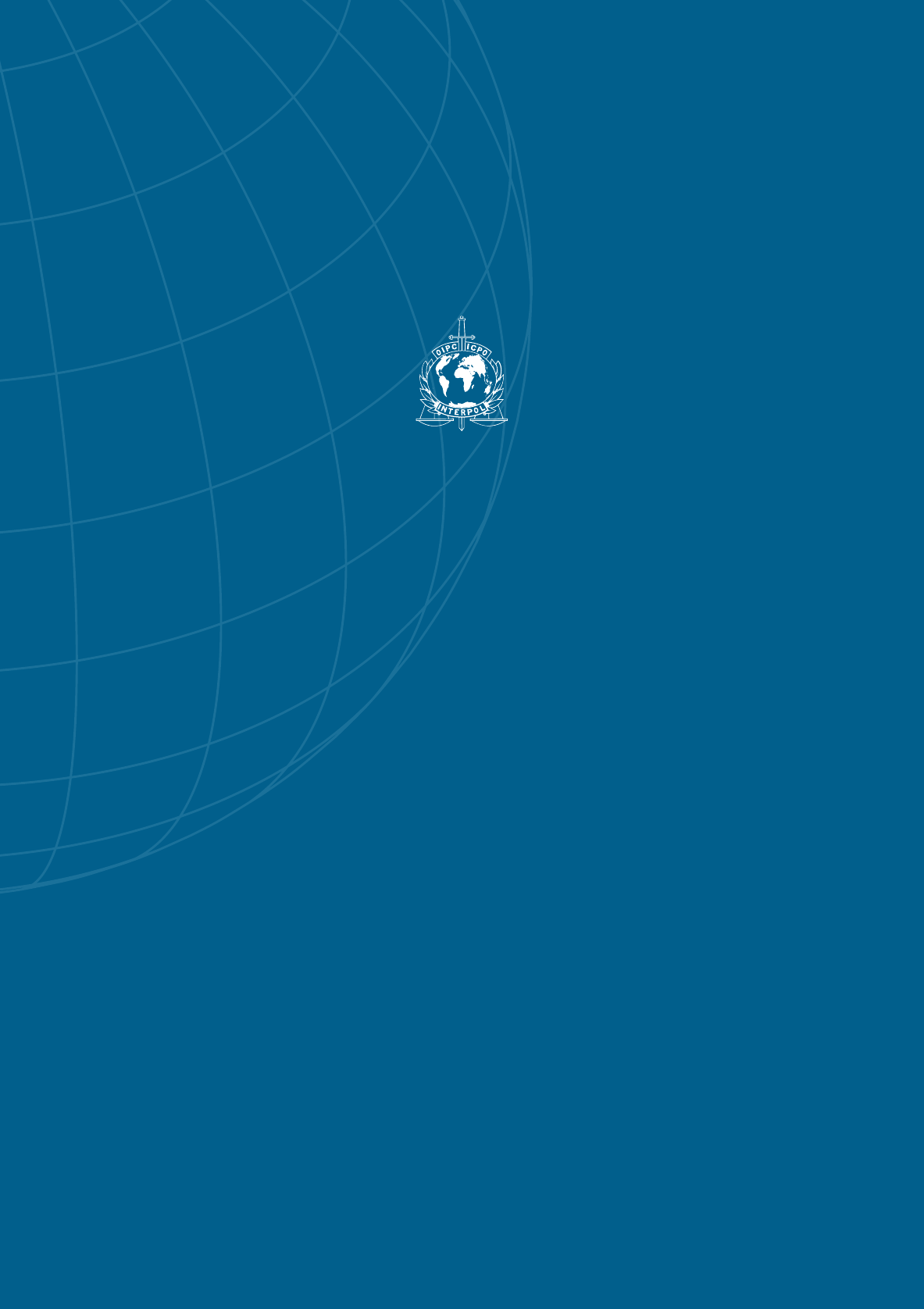
WWW.INTERPOL.INT
INTERPOL
INTERPOL
ANNUAL REPORT 2009
INTERPOL’s role is to enable police around the world to work together
to make the world a safer place. Our high-tech infrastructure of
technical and operational support helps meet the growing challenges
of fighting crime in the 21st century.
We work to ensure that police around the world have access to the
tools and services necessary to do their jobs effectively. We provide
targeted training, expert investigative support, relevant data and
secure communications channels.
This combined framework helps police on the ground understand
crime trends, analyse information, conduct operations and, ultimately,
arrest as many criminals as possible.
The General Secretariat is located in Lyon, France, and operates 24
hours a day, 365 days a year. INTERPOL also has seven regional
offices across the world and a representative office at the United
Nations in New York and at the European Union in Brussels. Each
member country maintains a National Central Bureau staffed by its
own highly trained law enforcement officials.
ANNUAL REPORT 2009
ICPO_AnnualReport2009_Cover_Multilingual_01.indd 2 09/06/10 14:42
